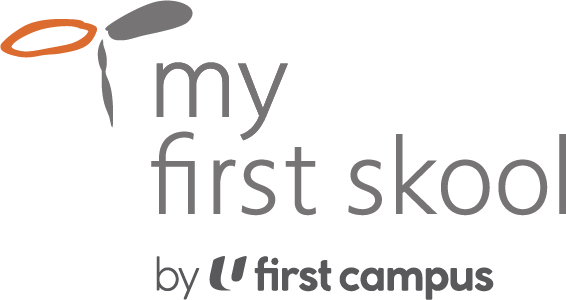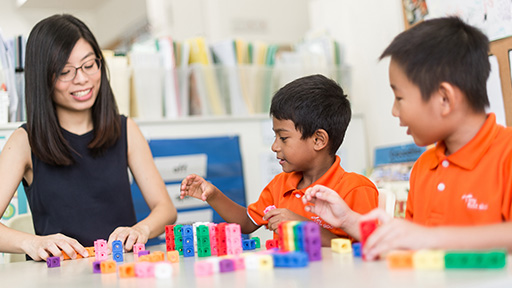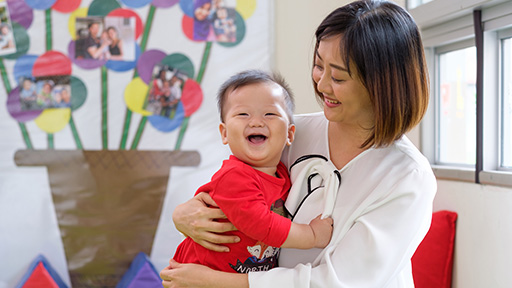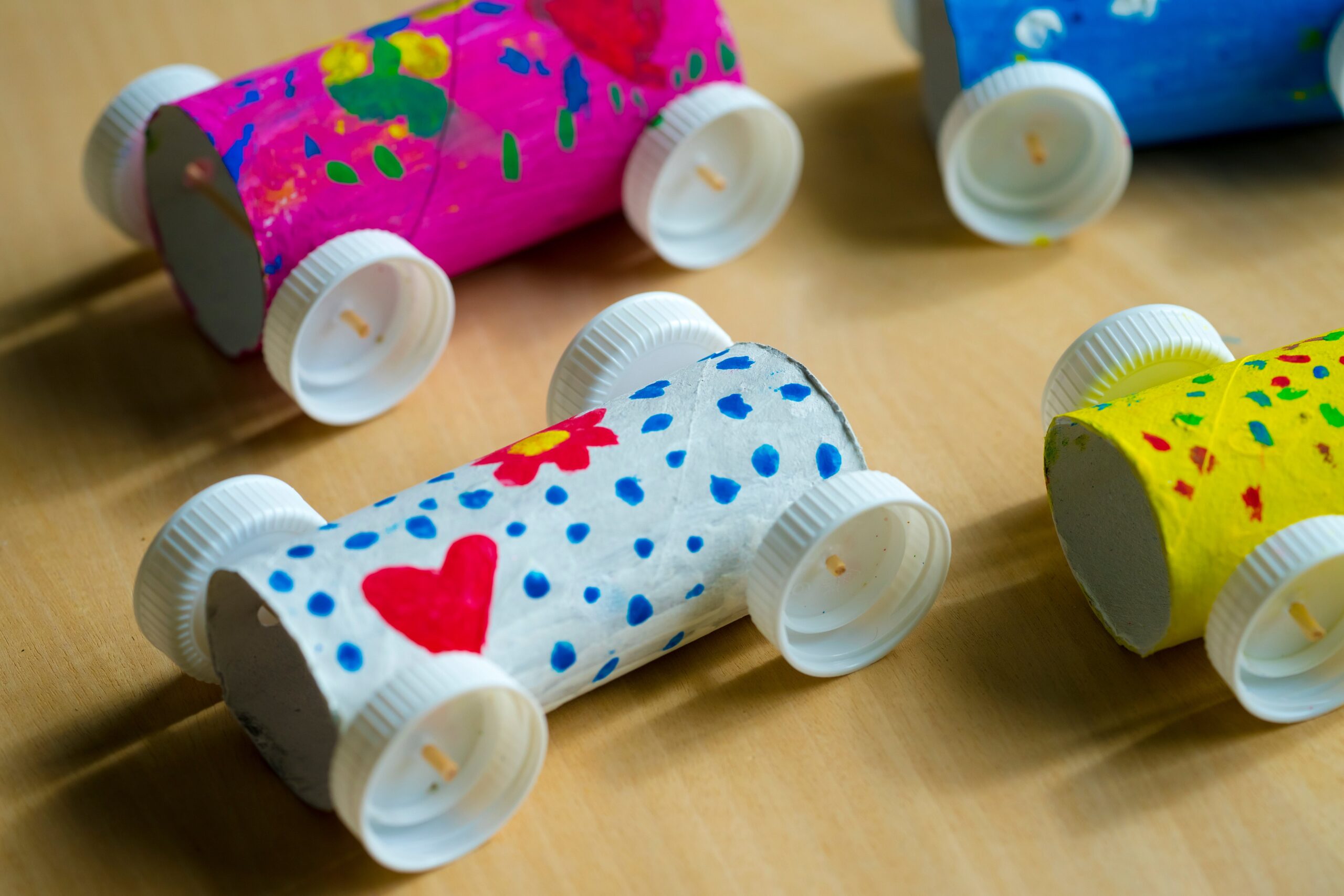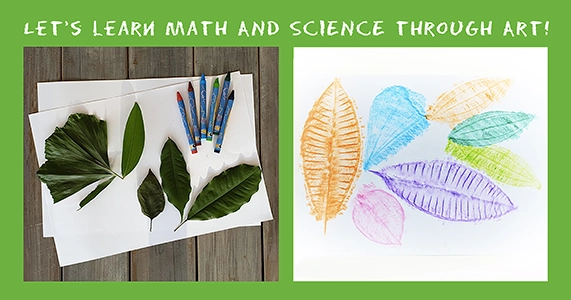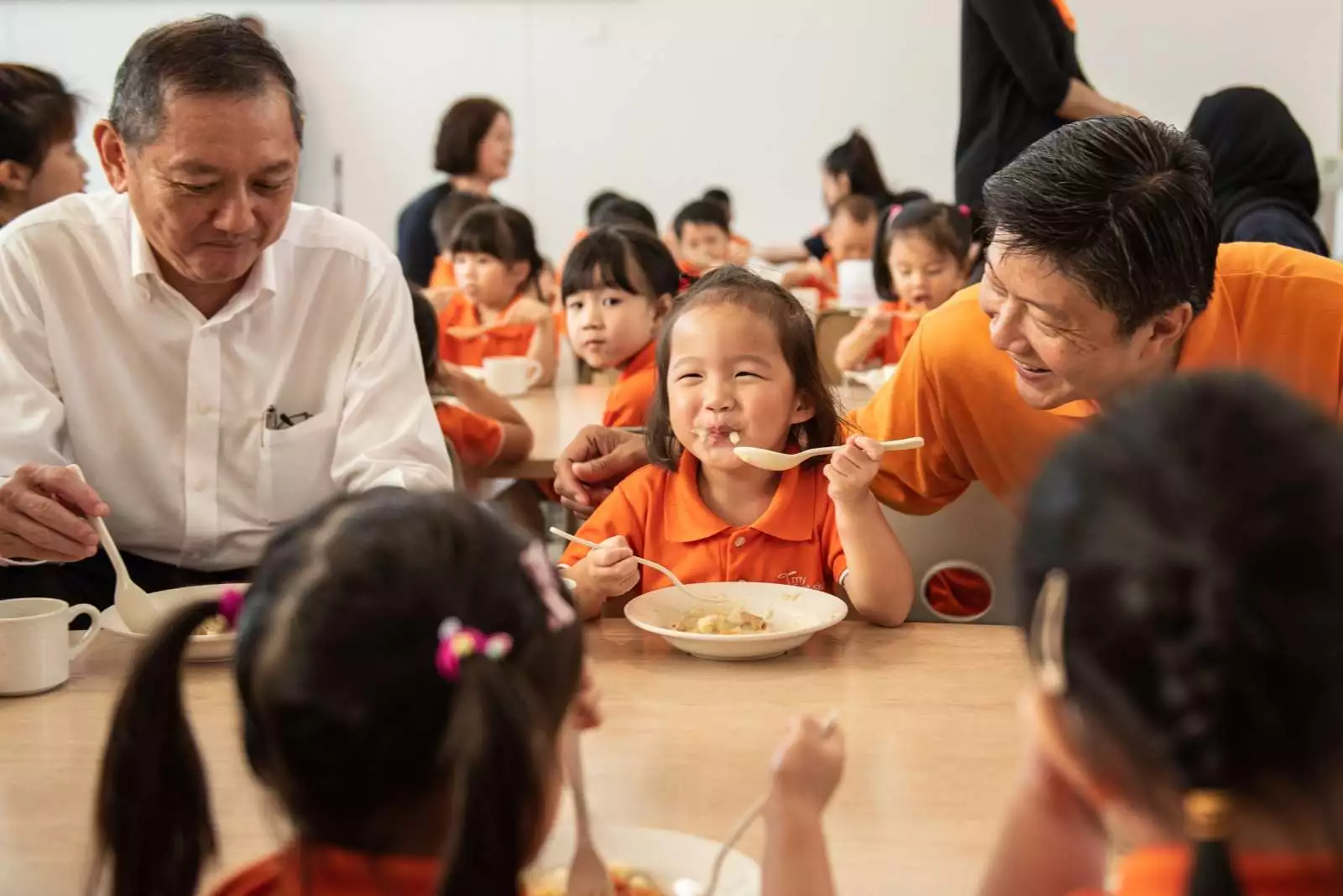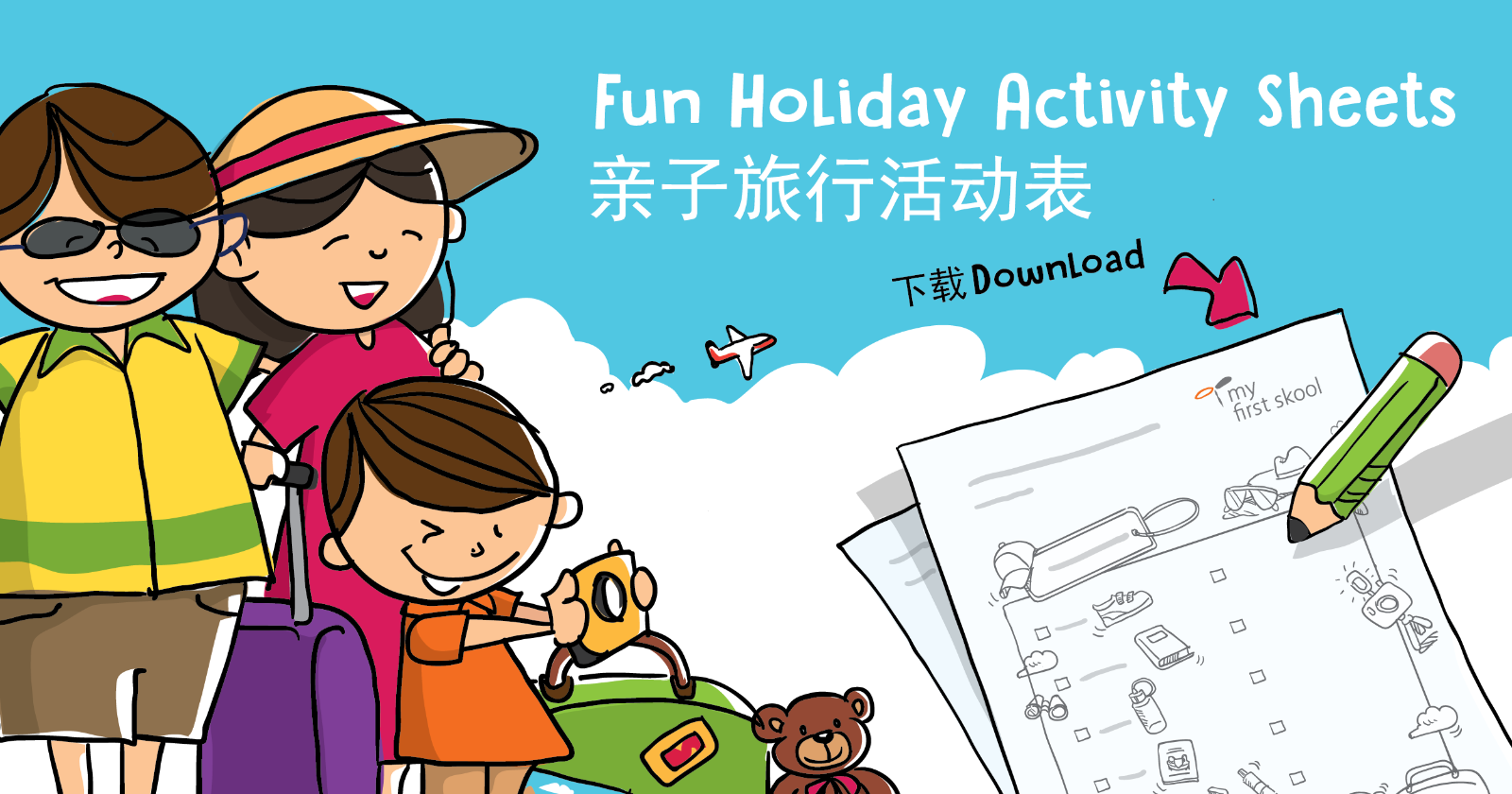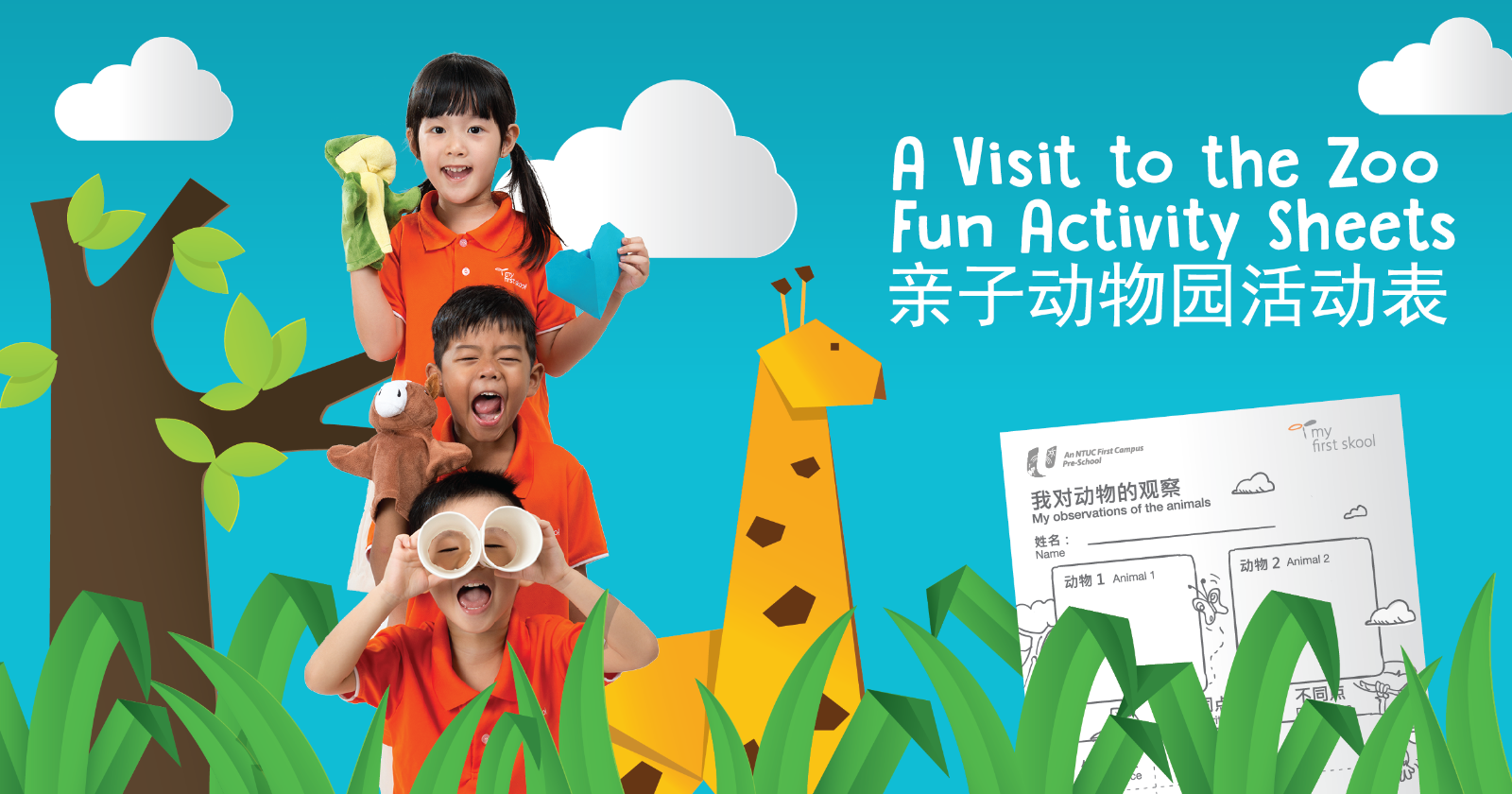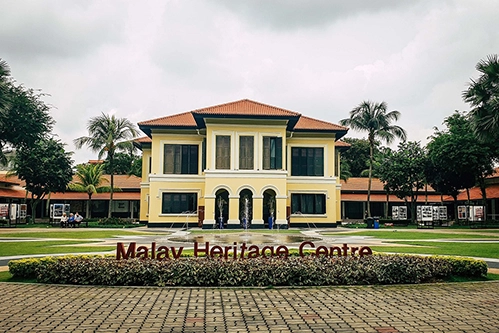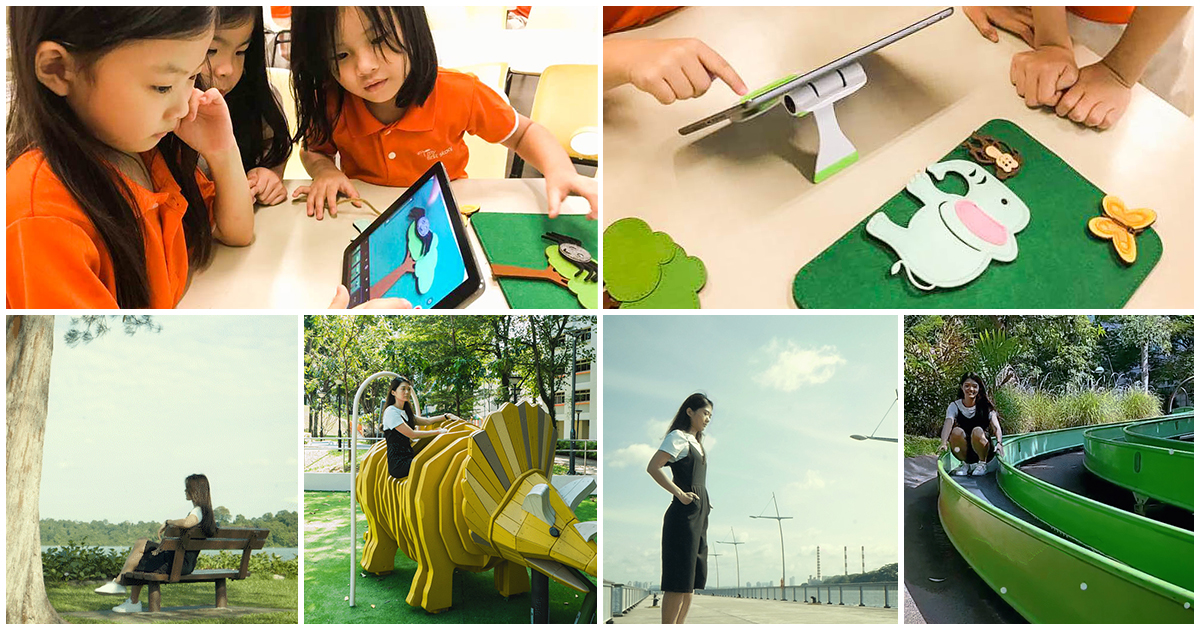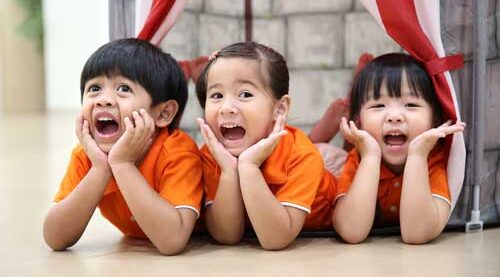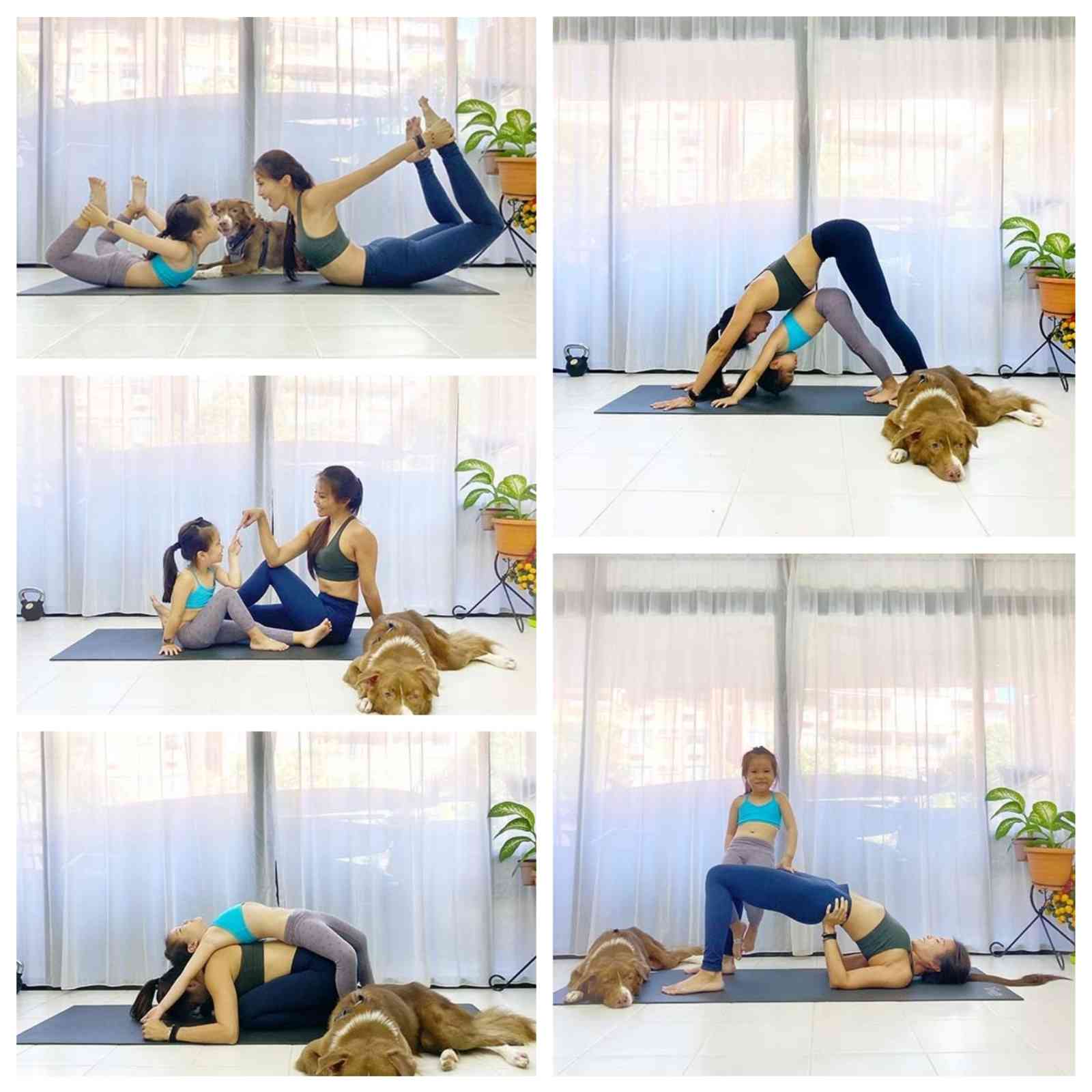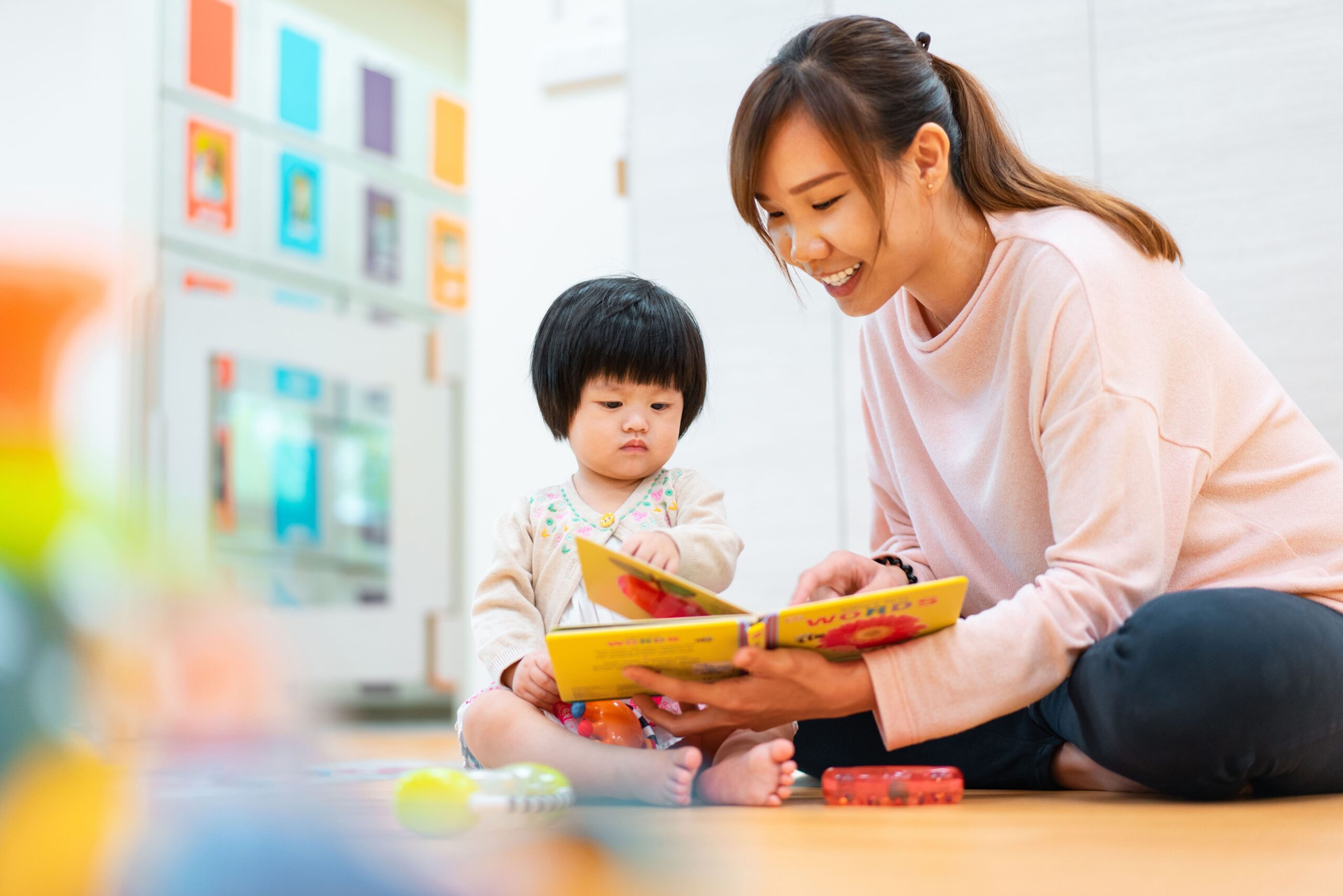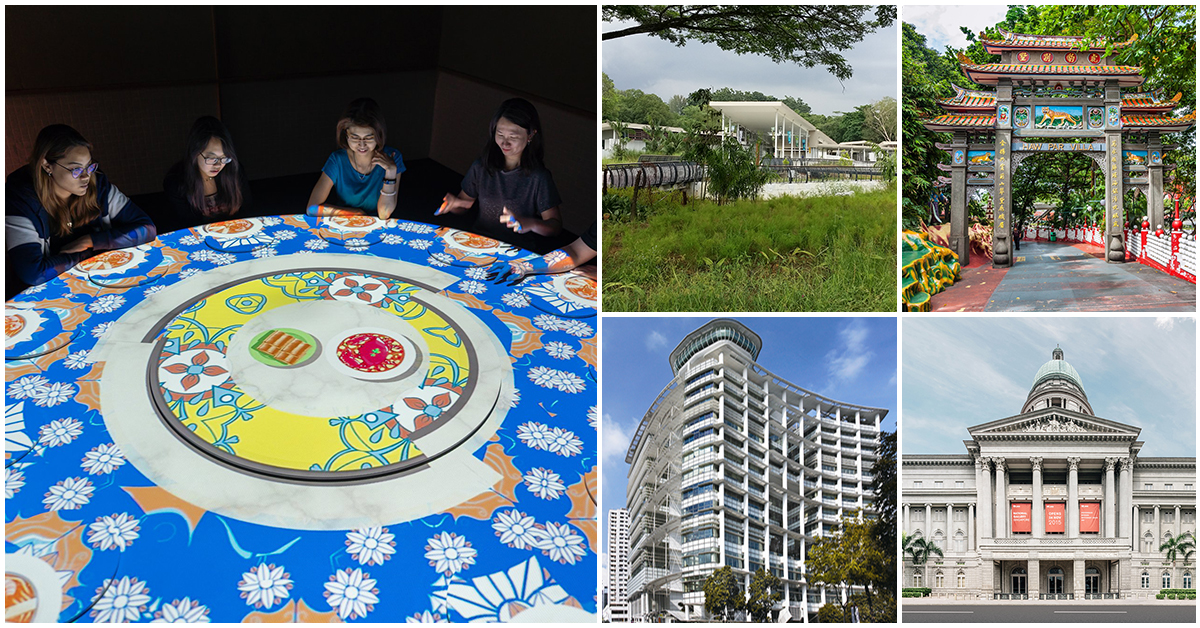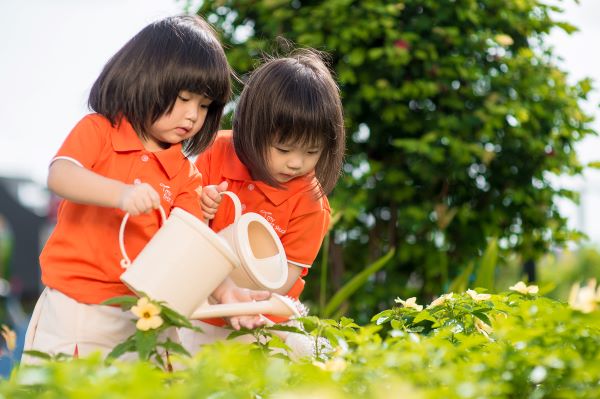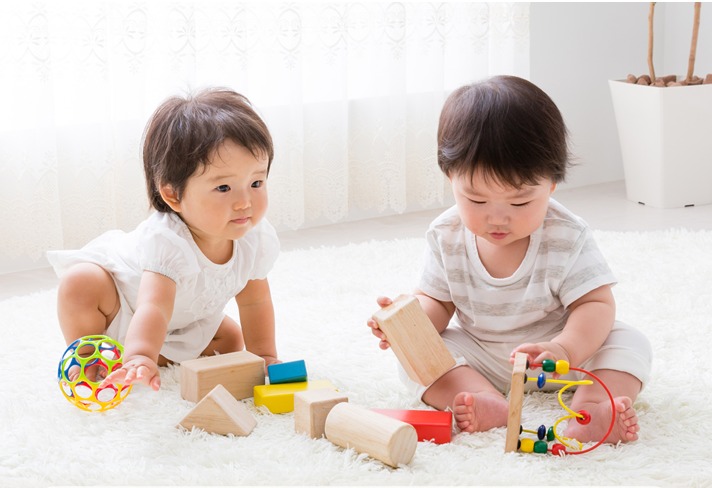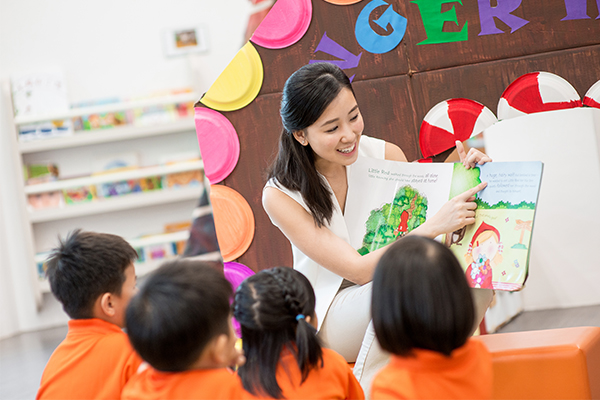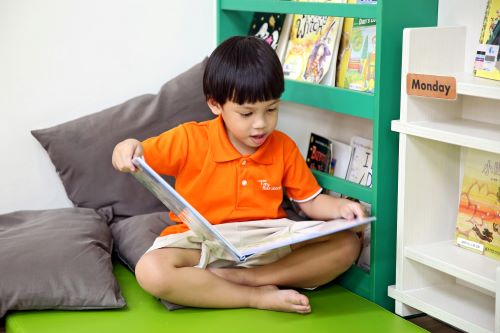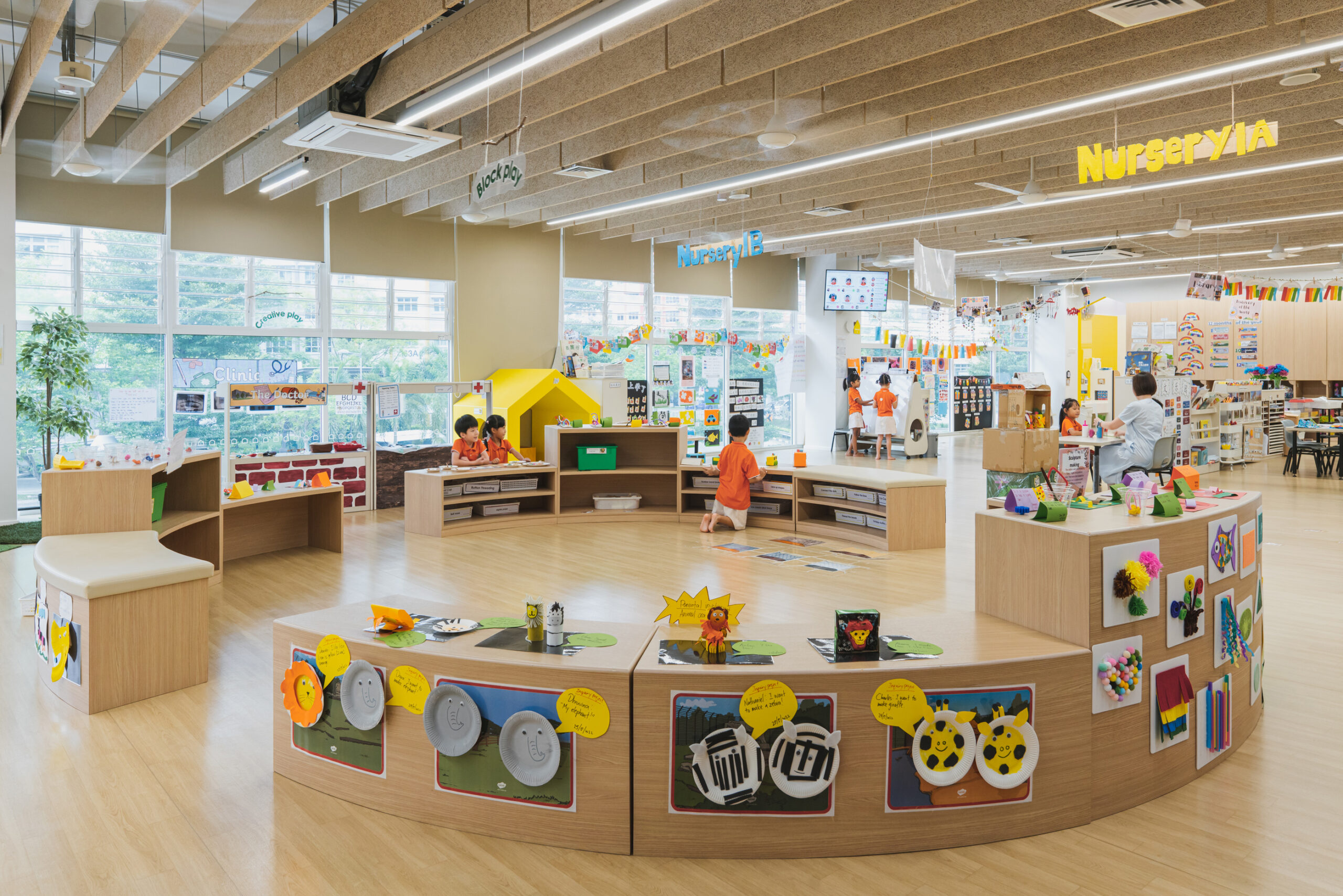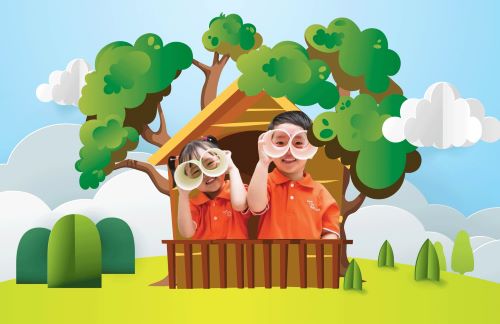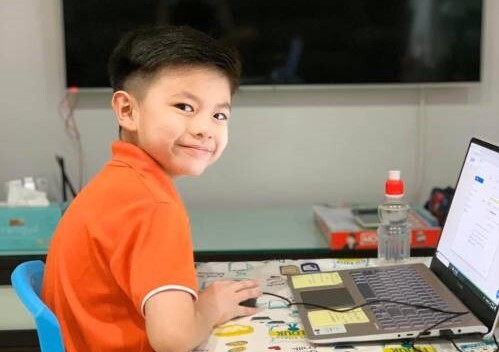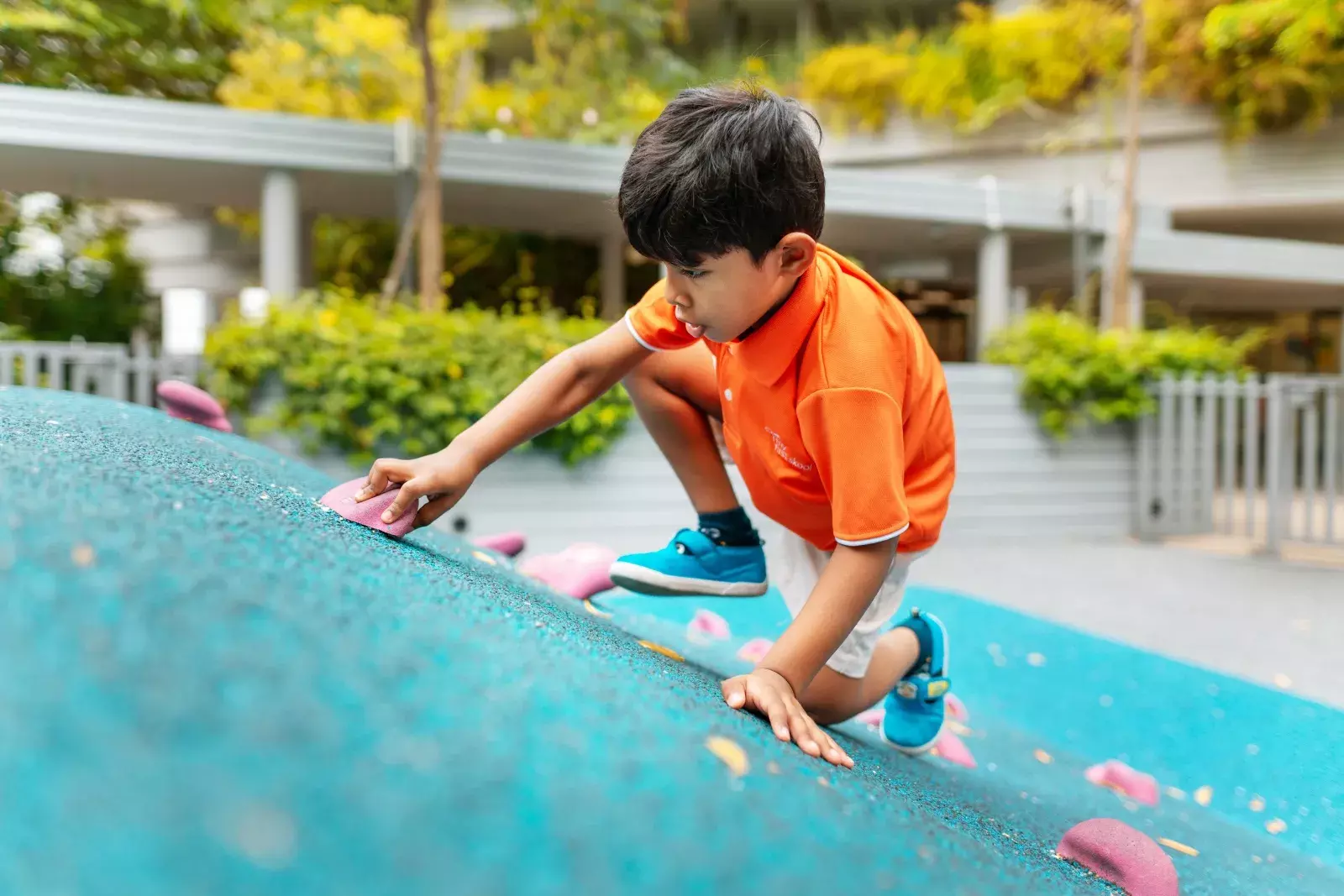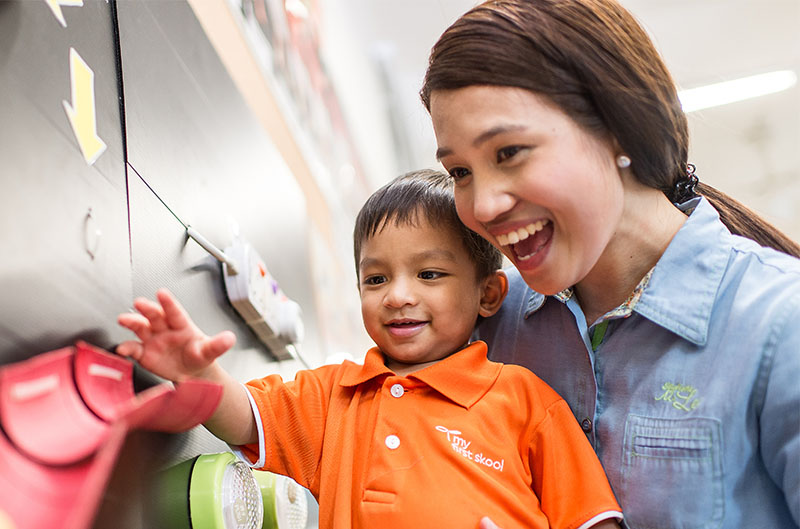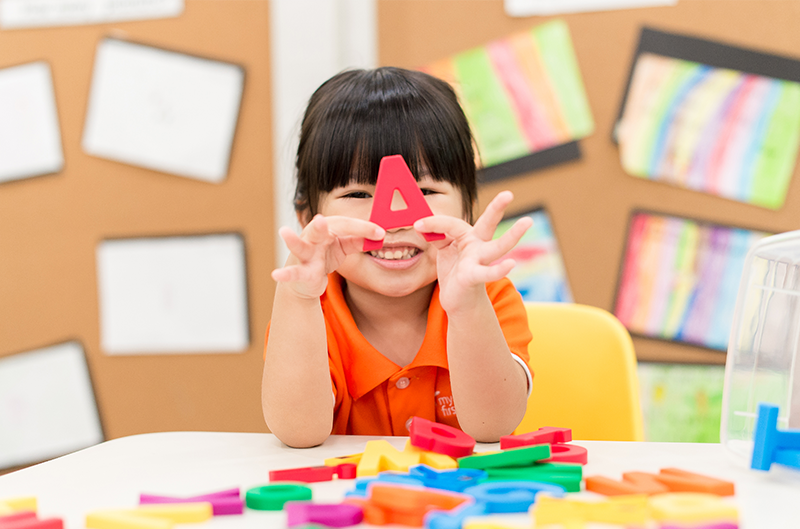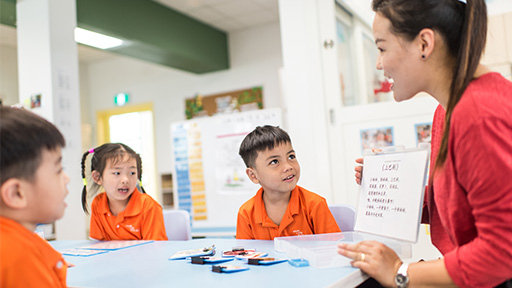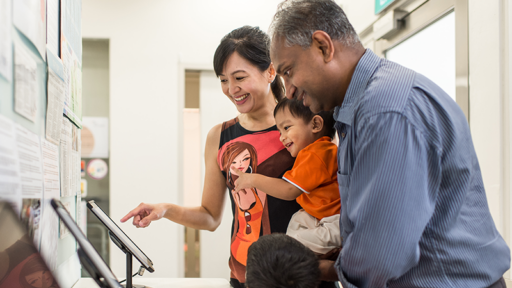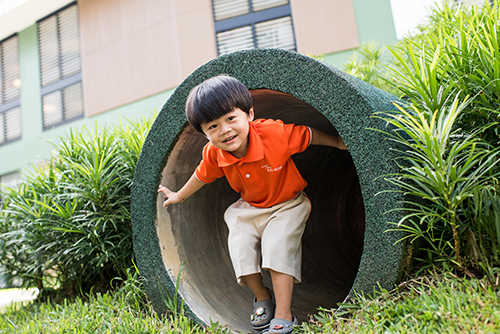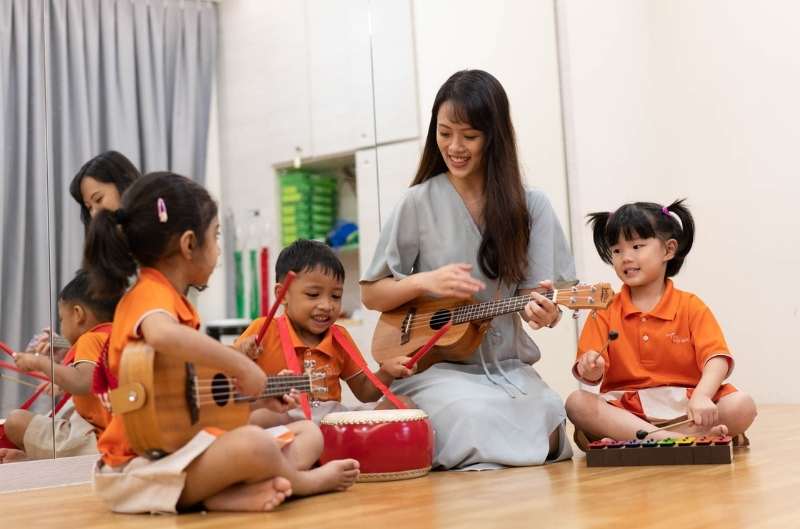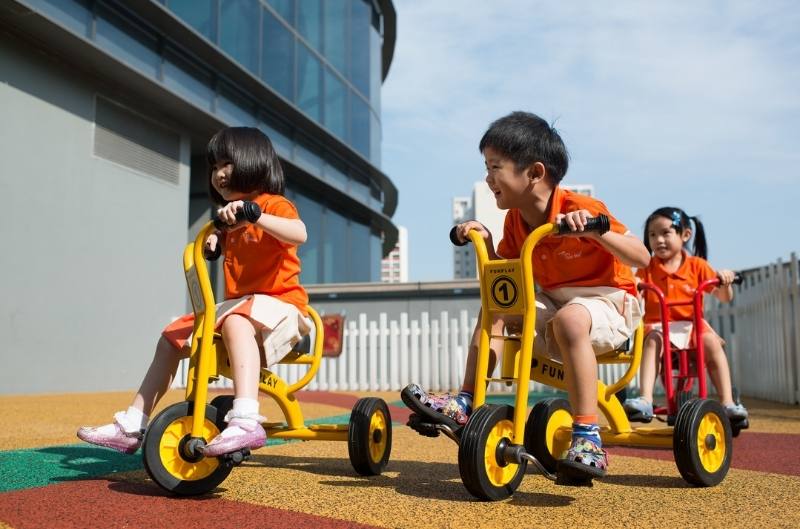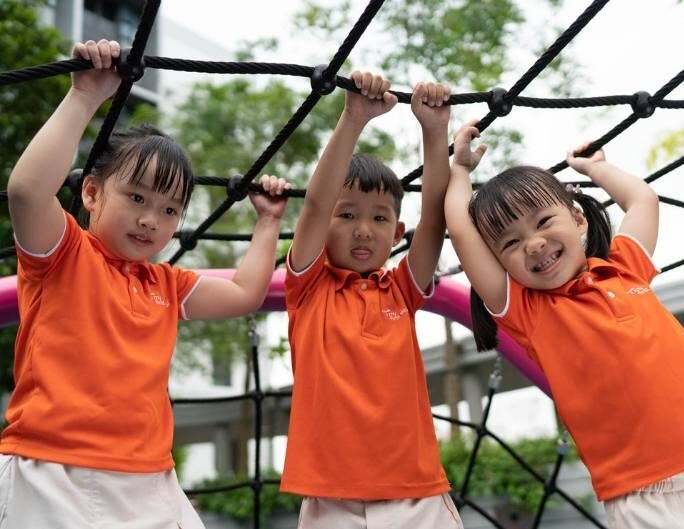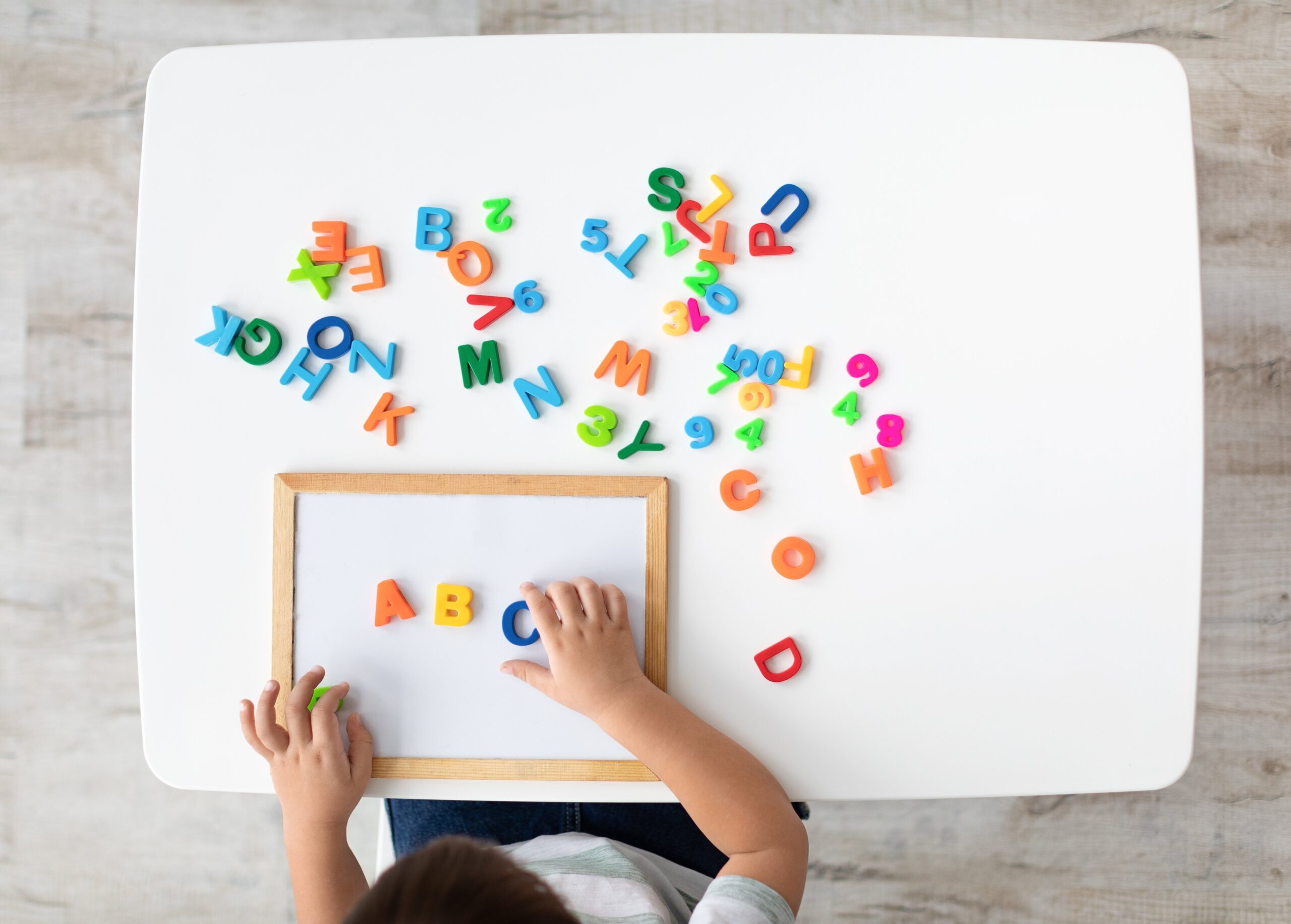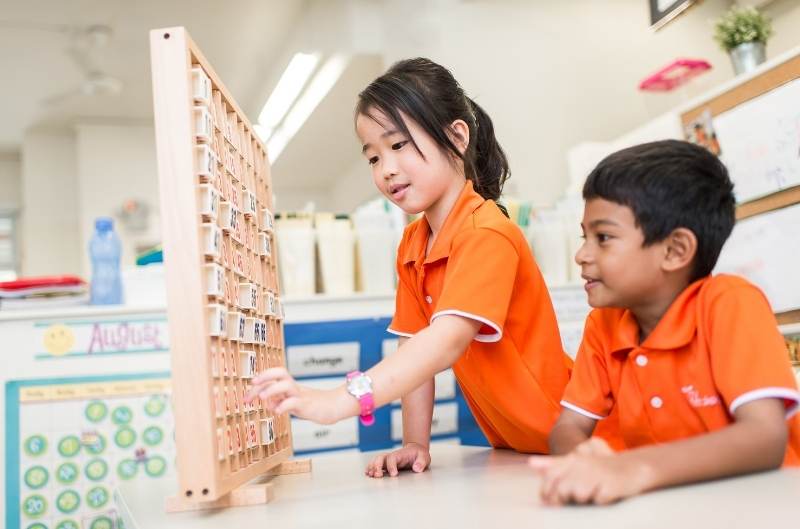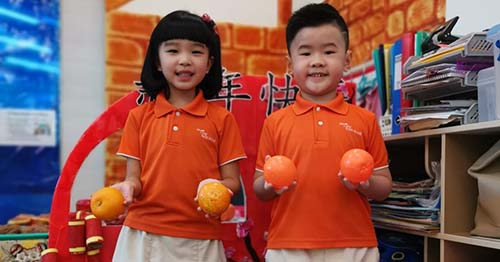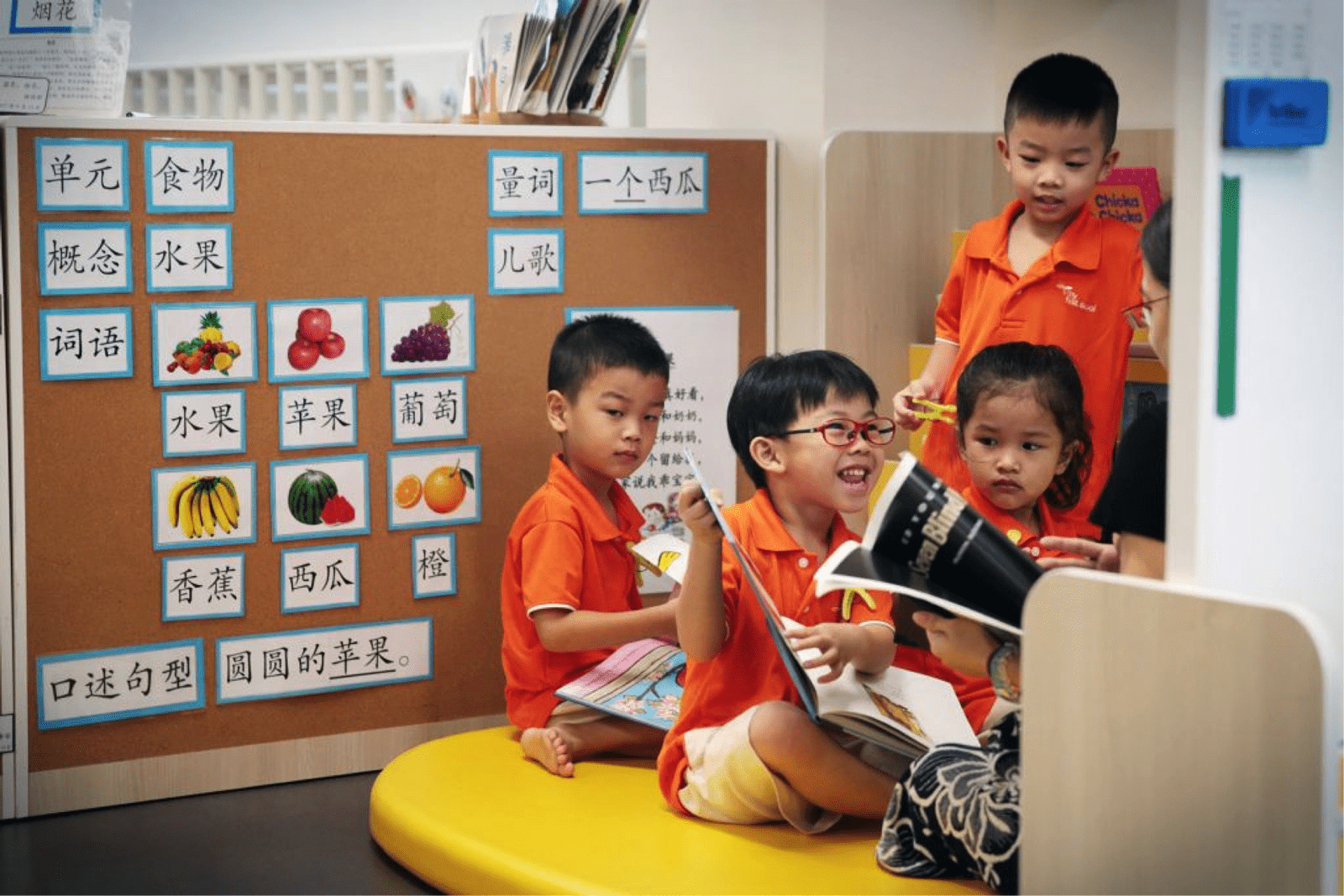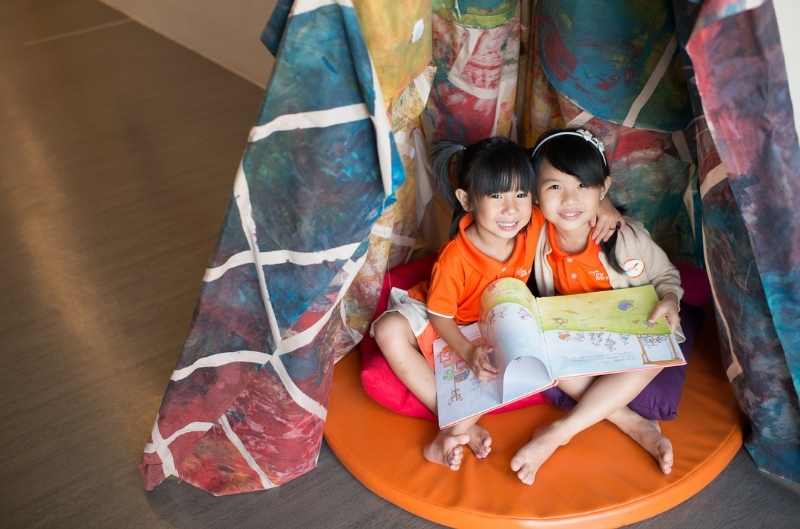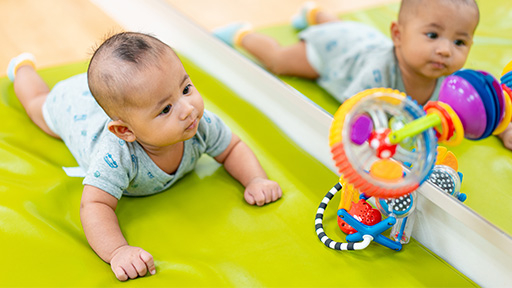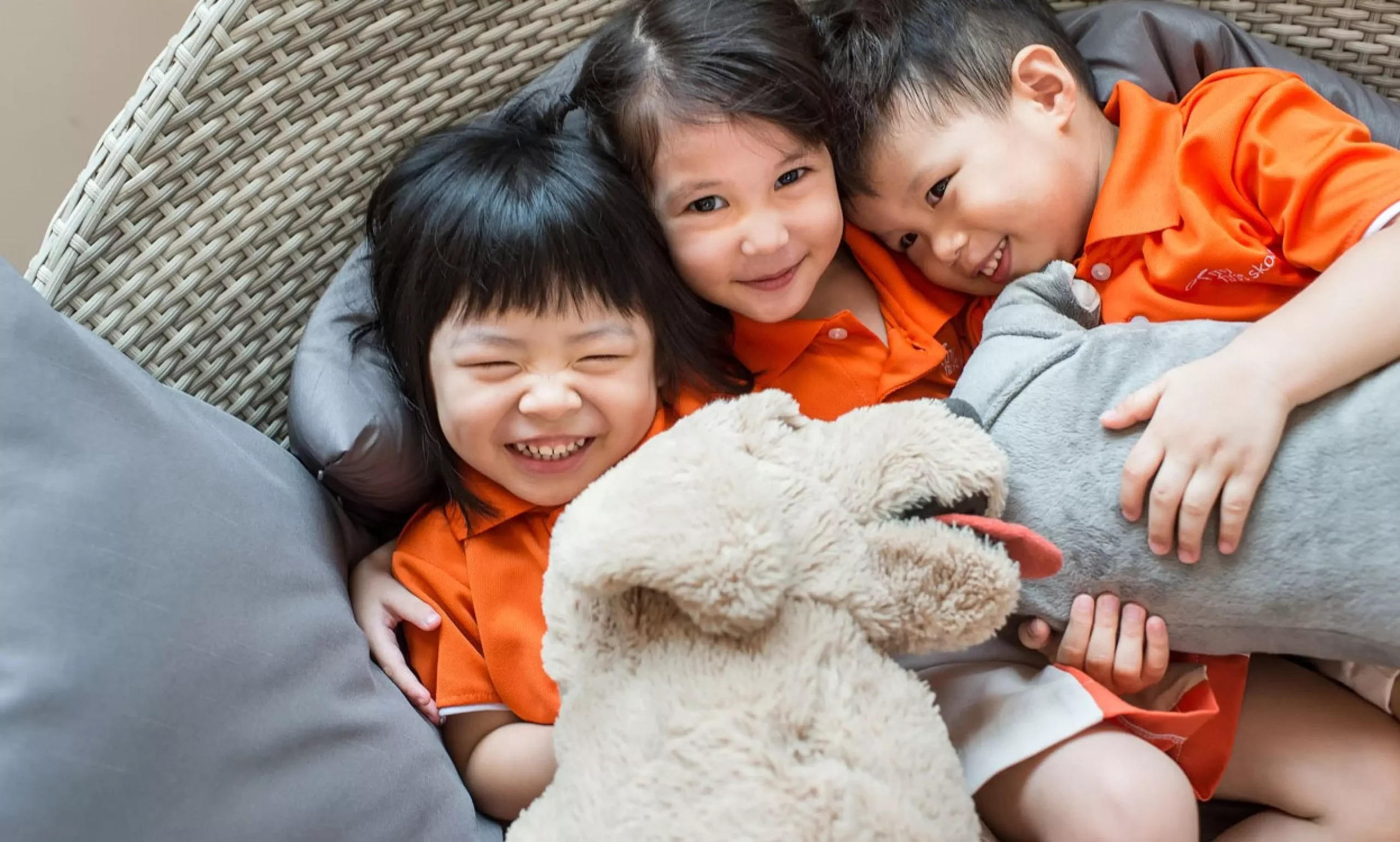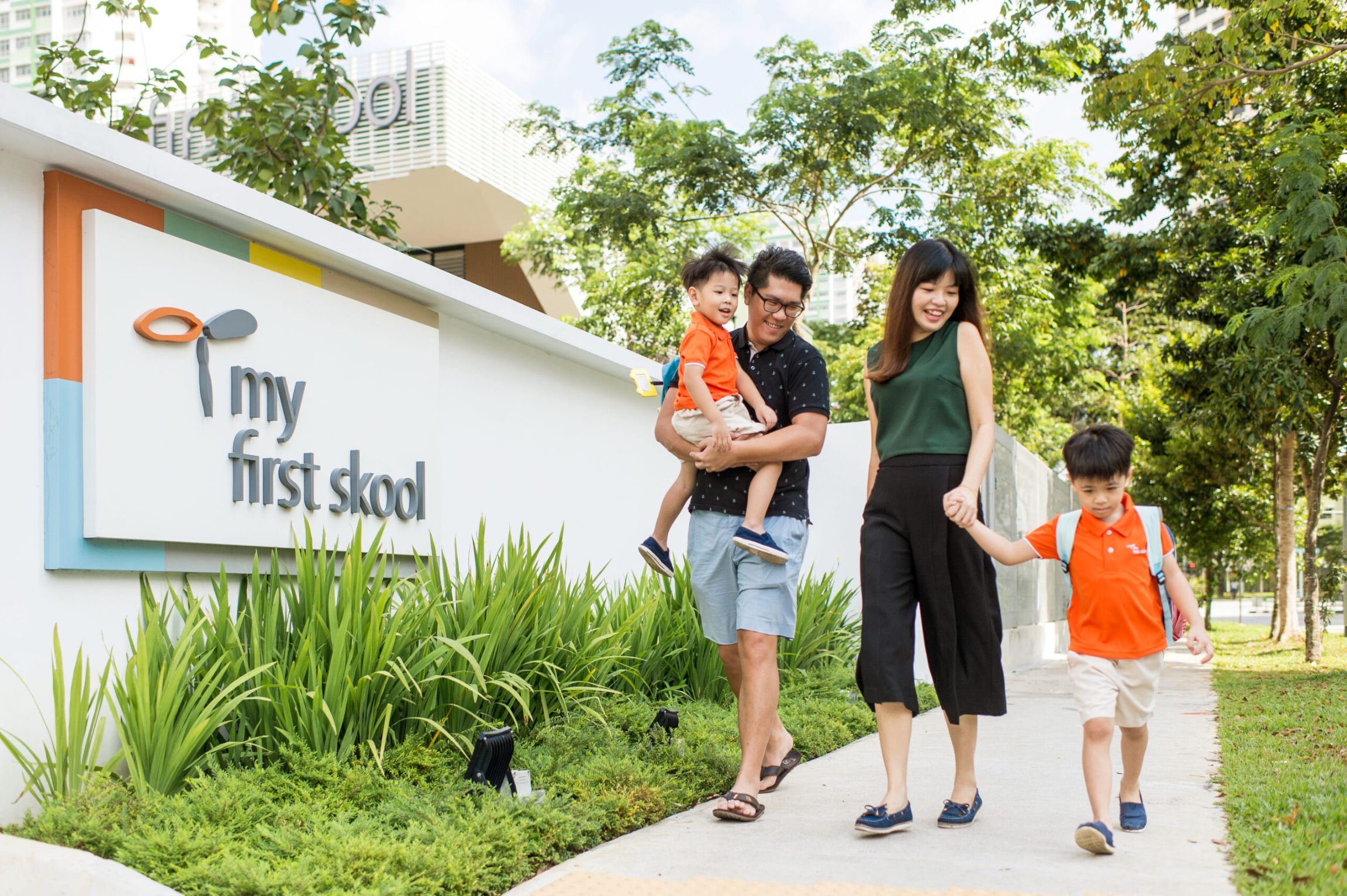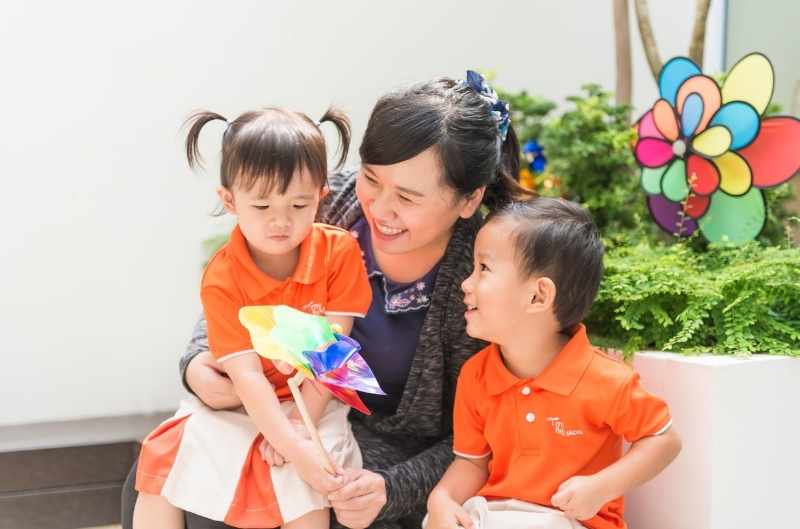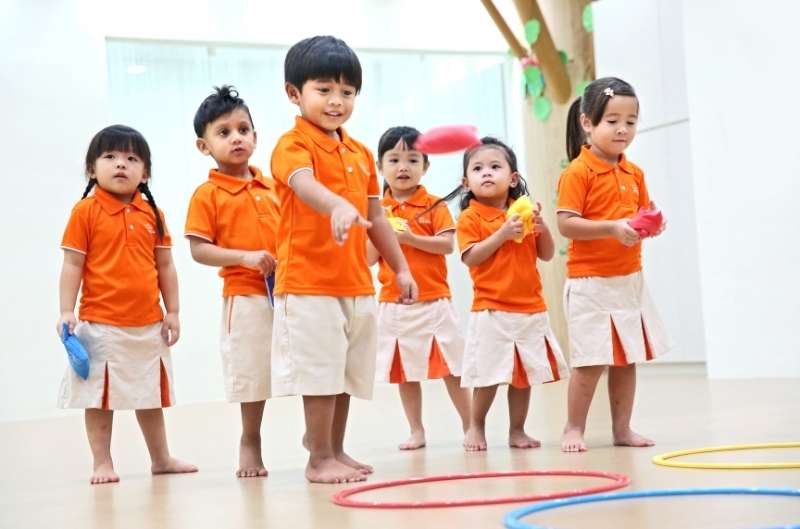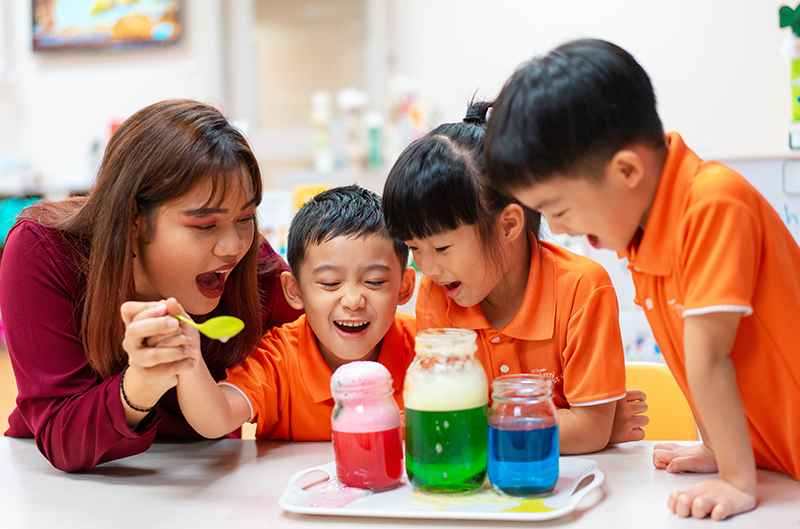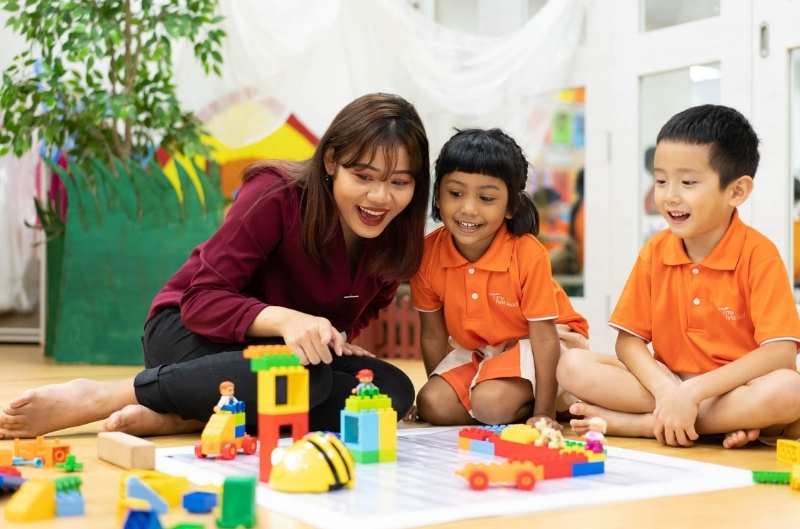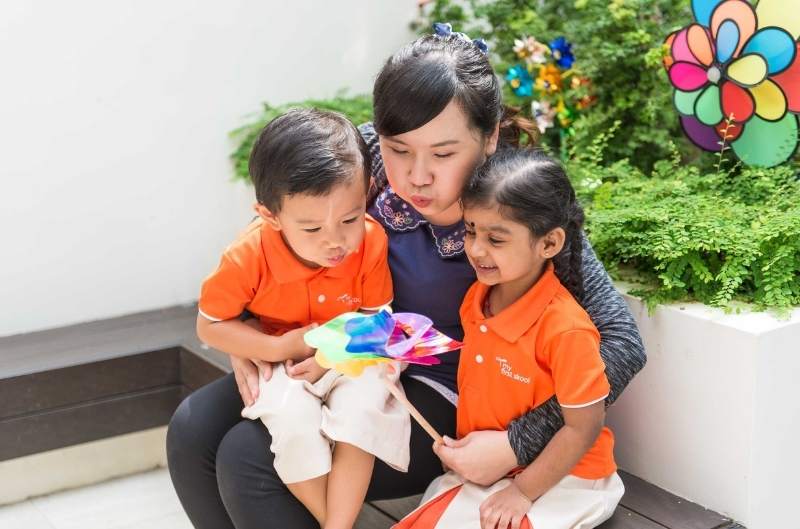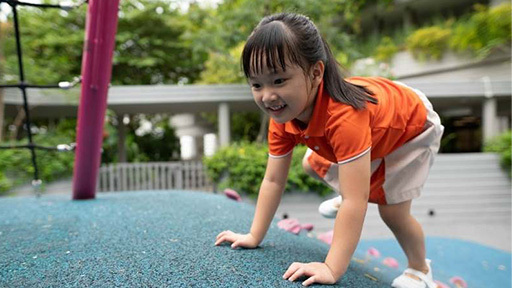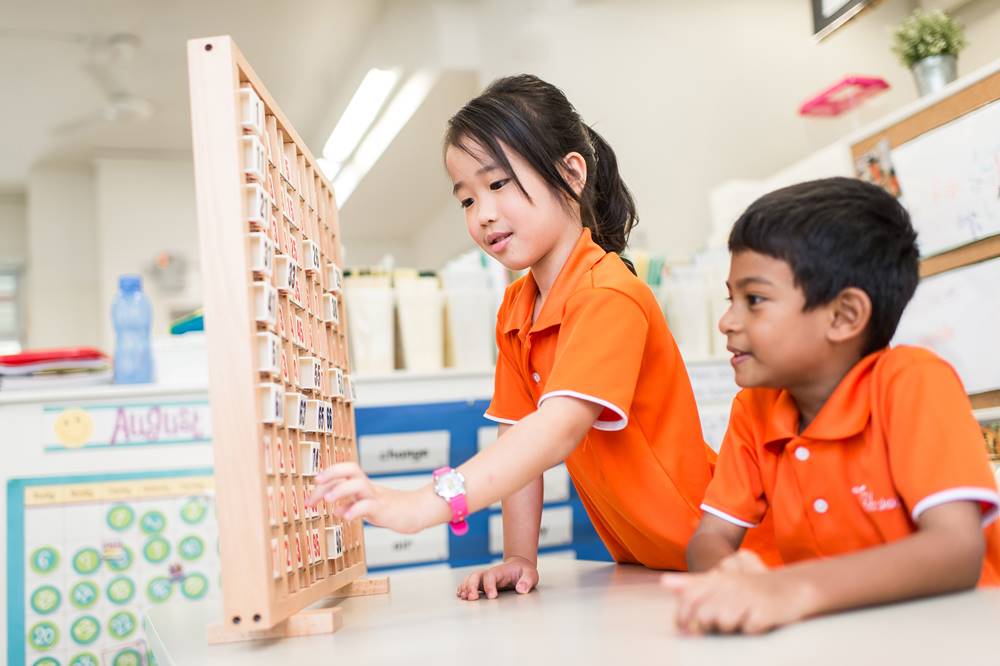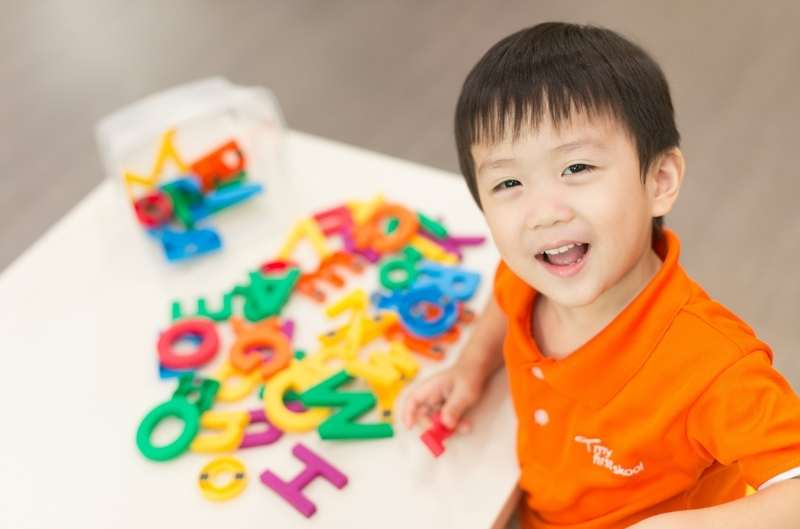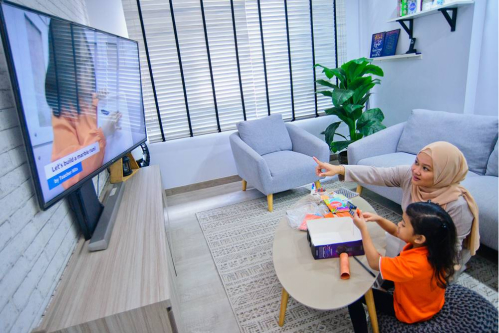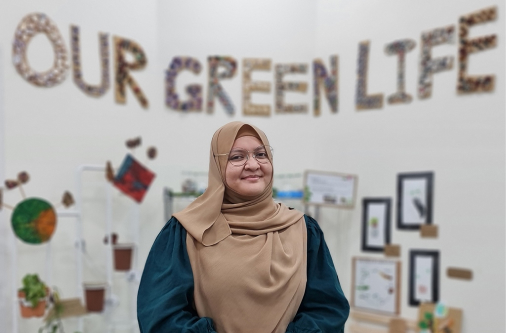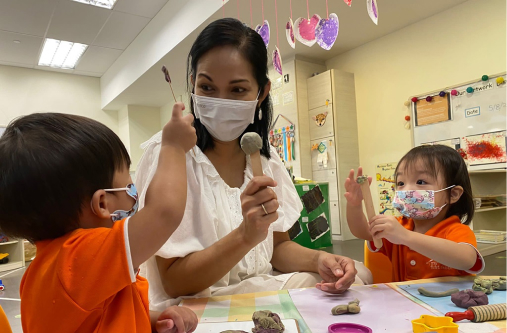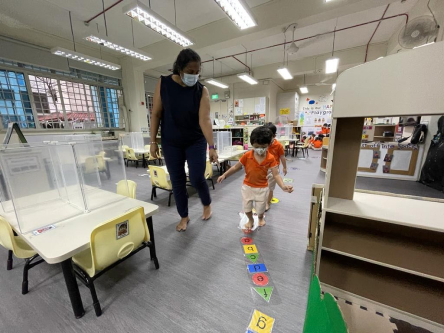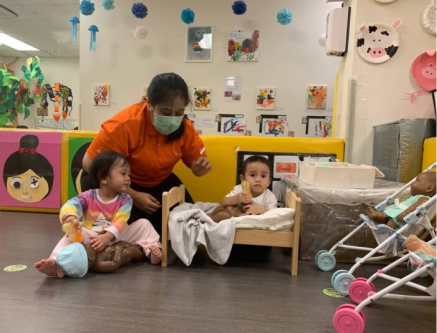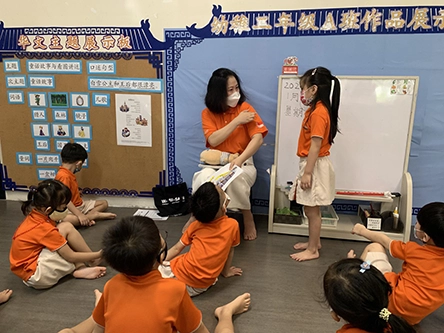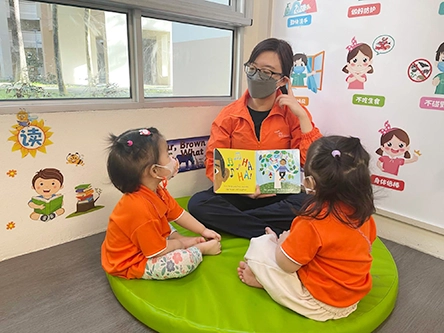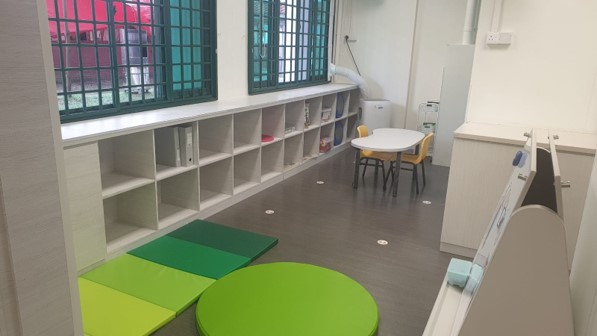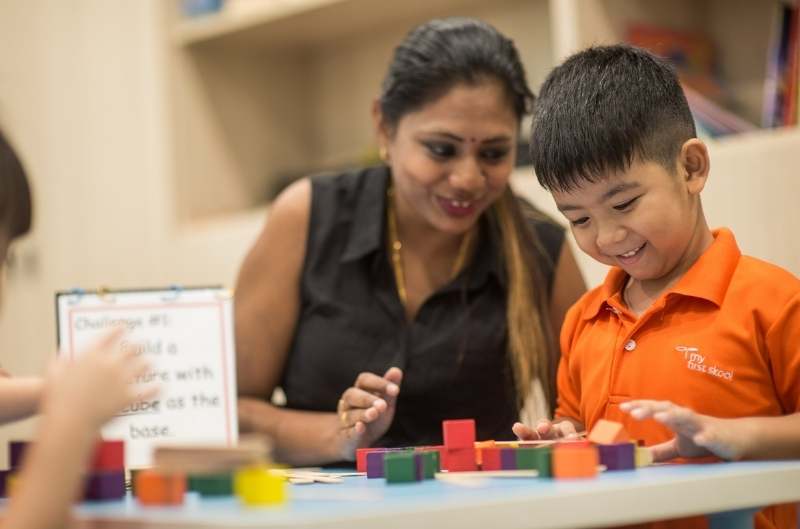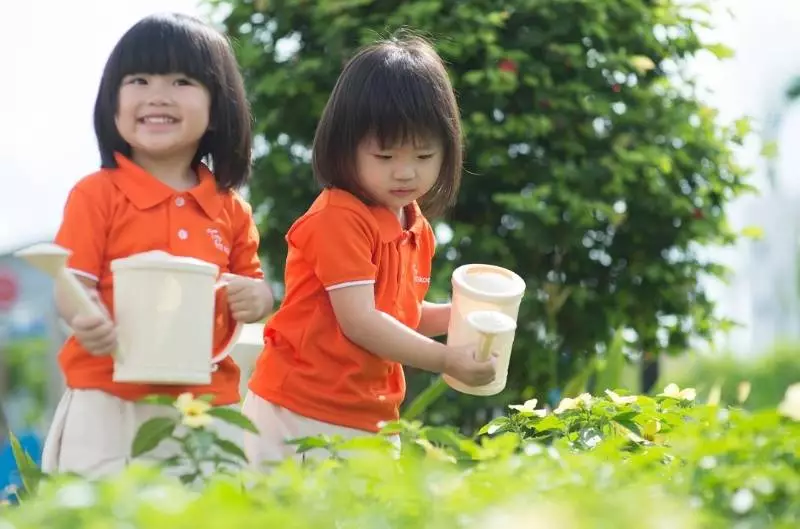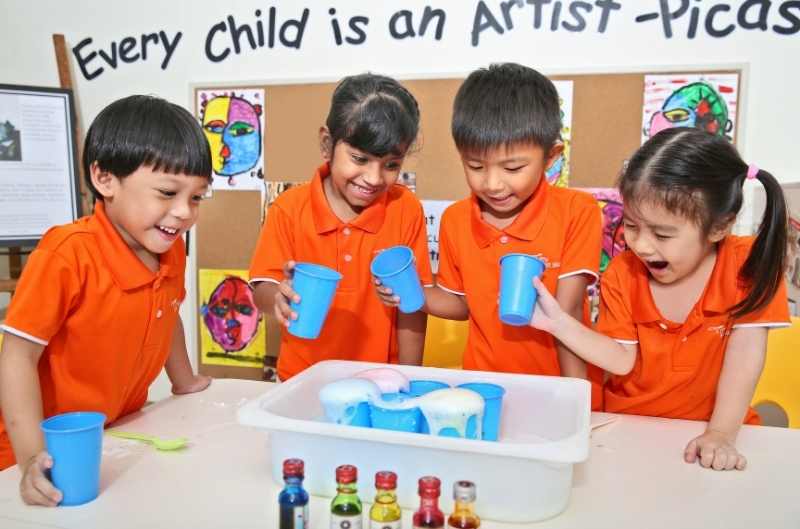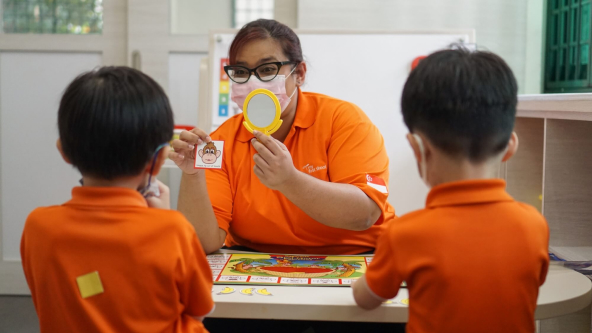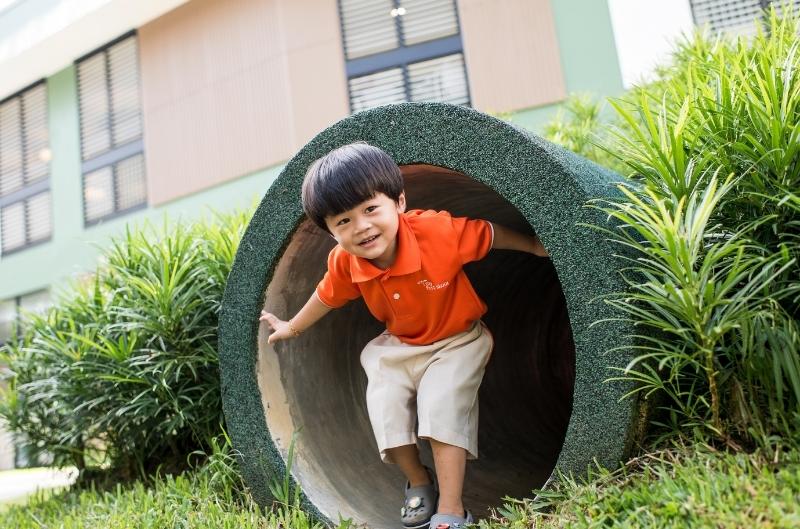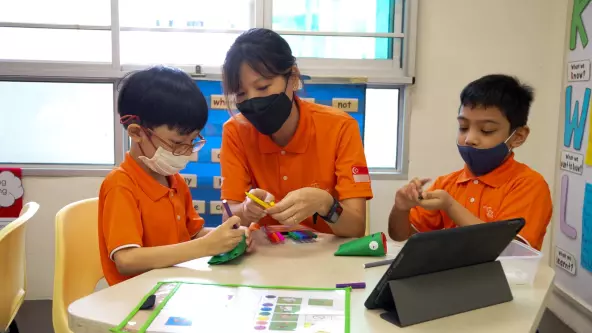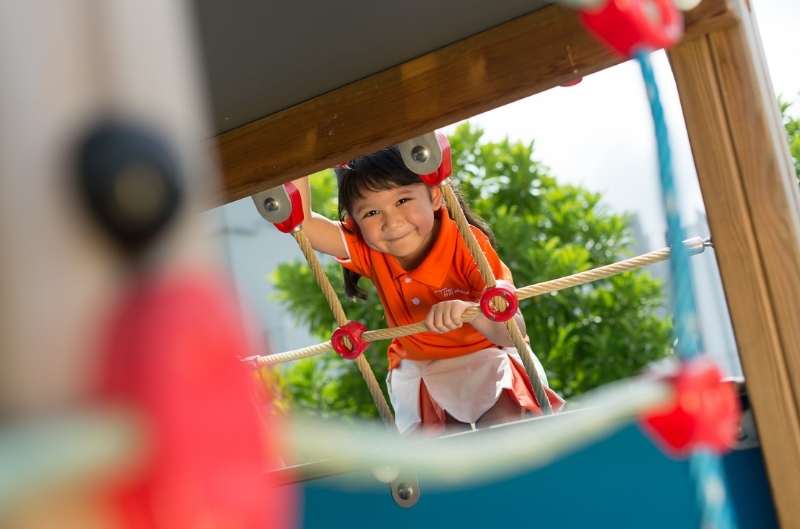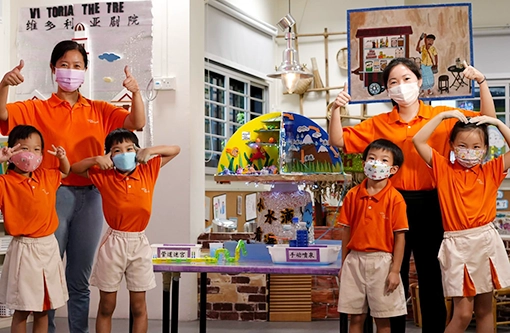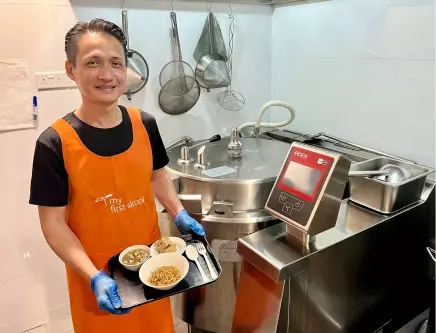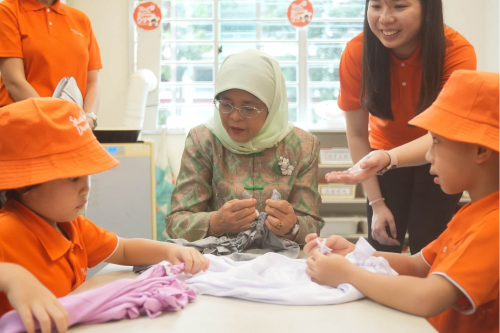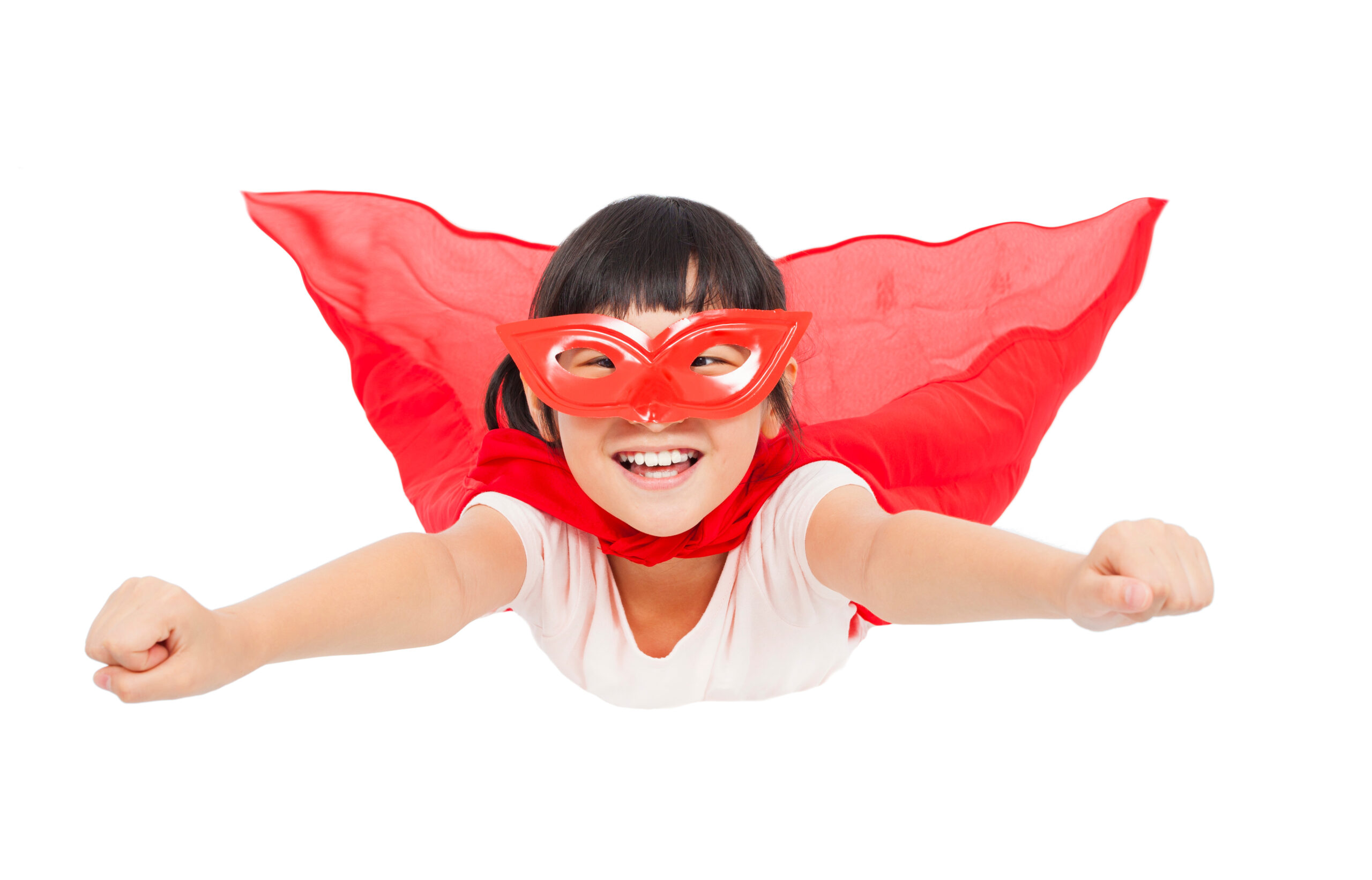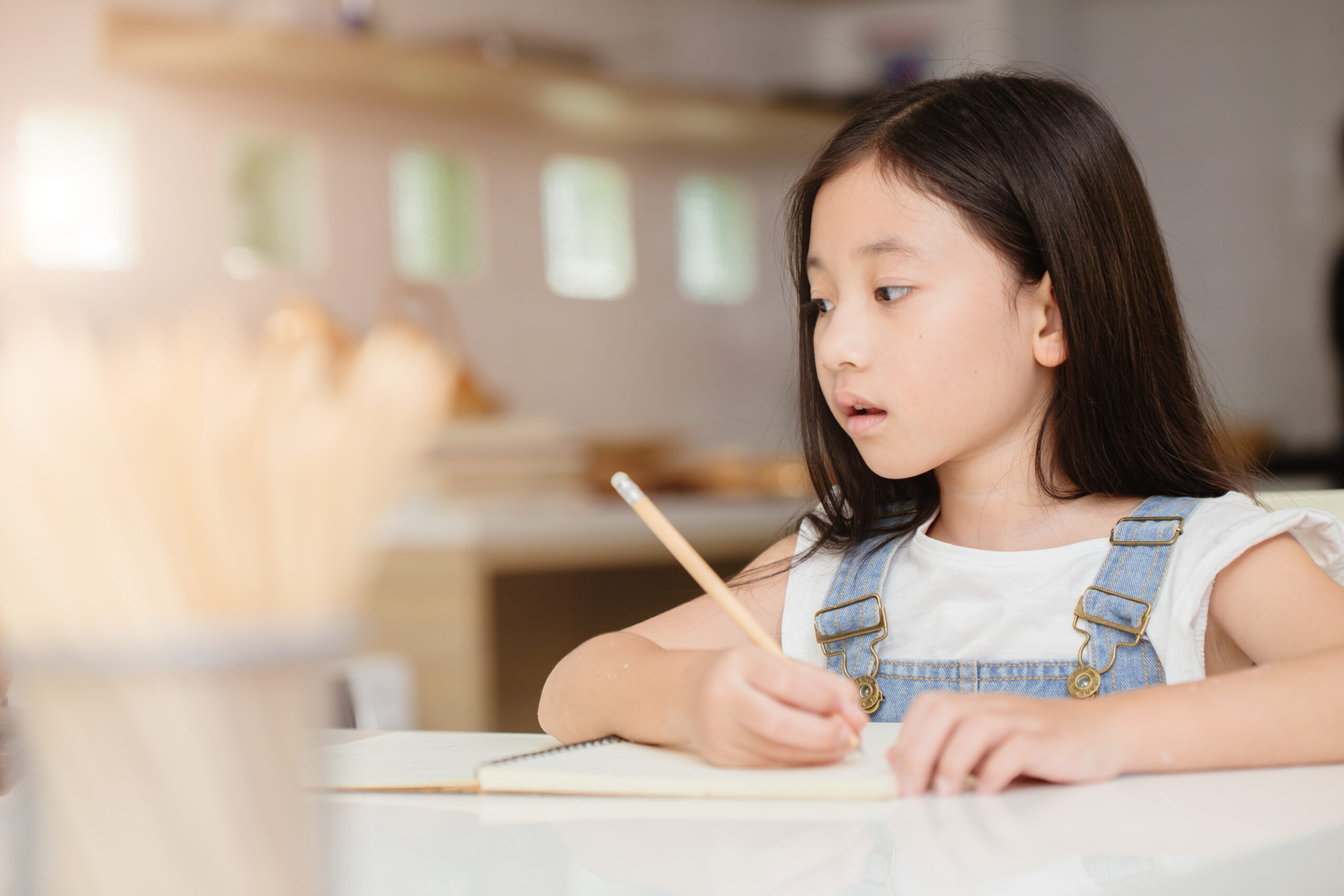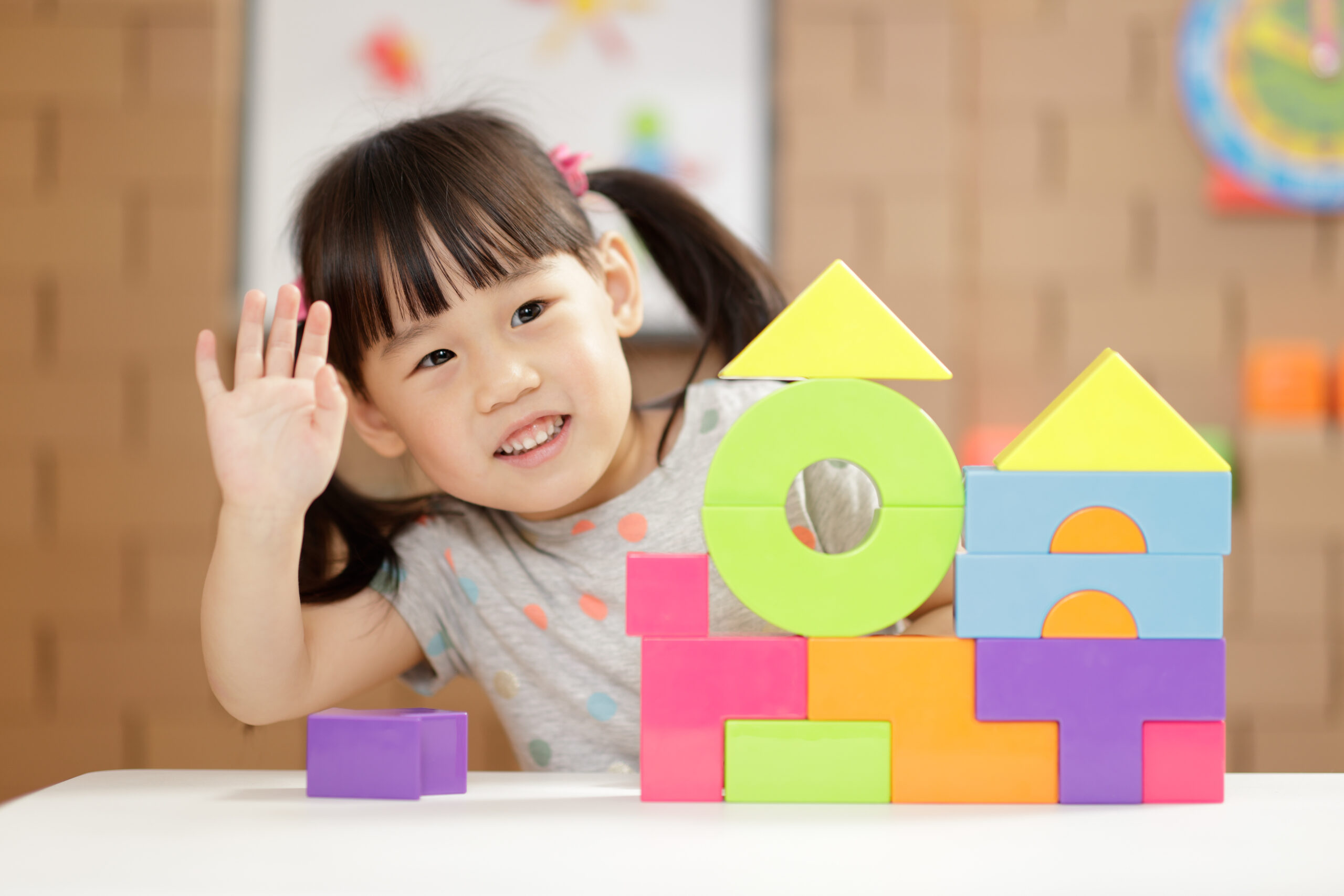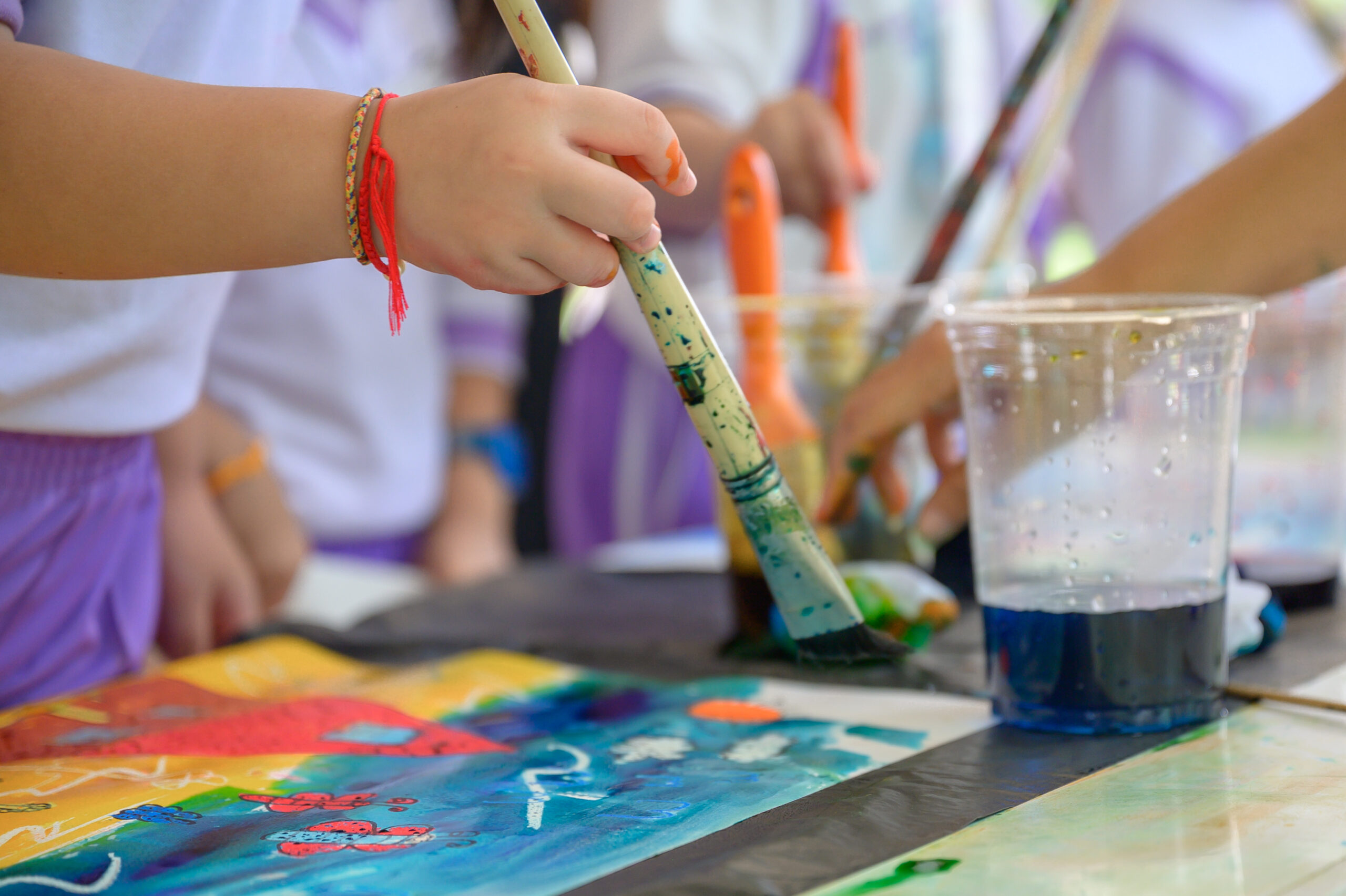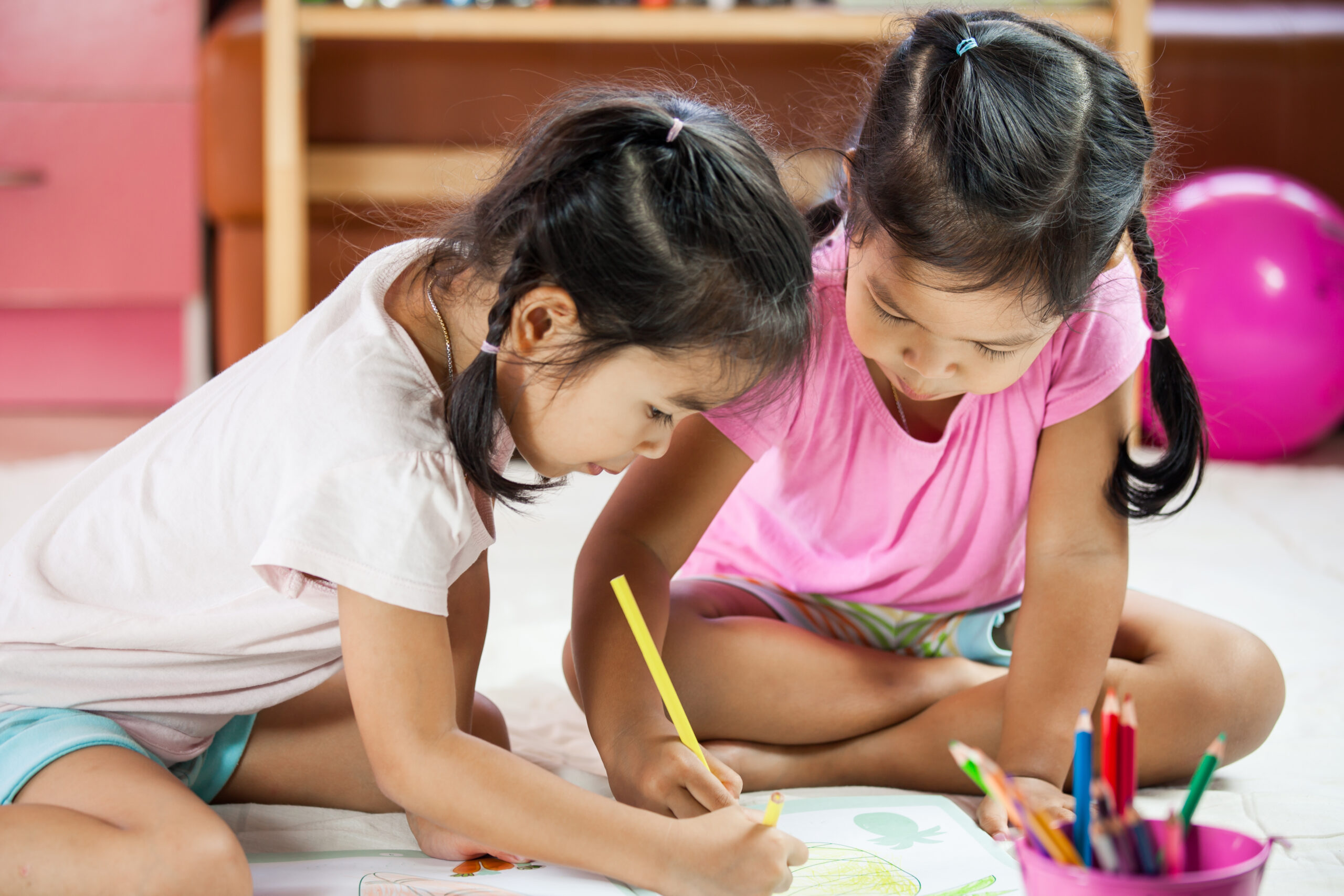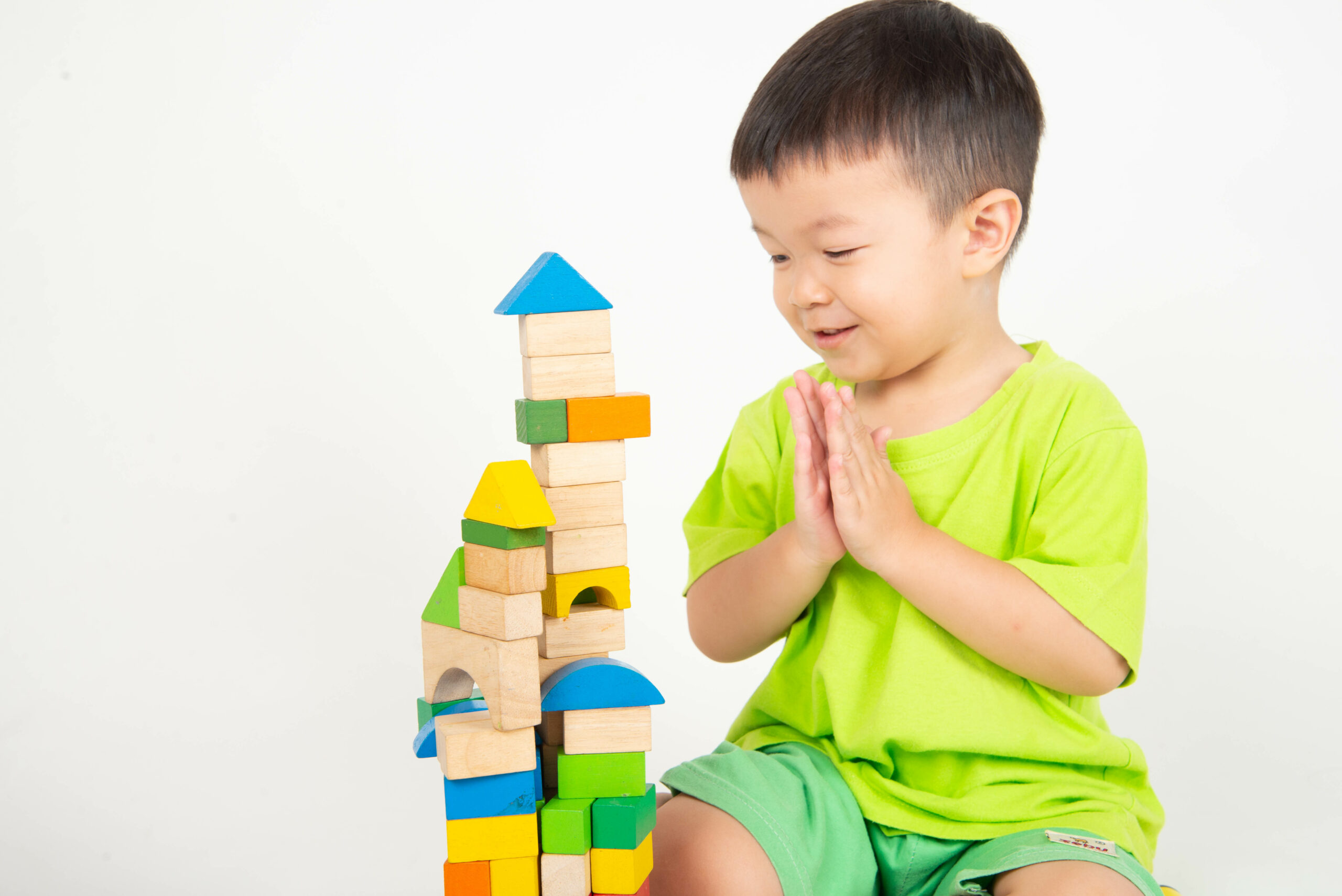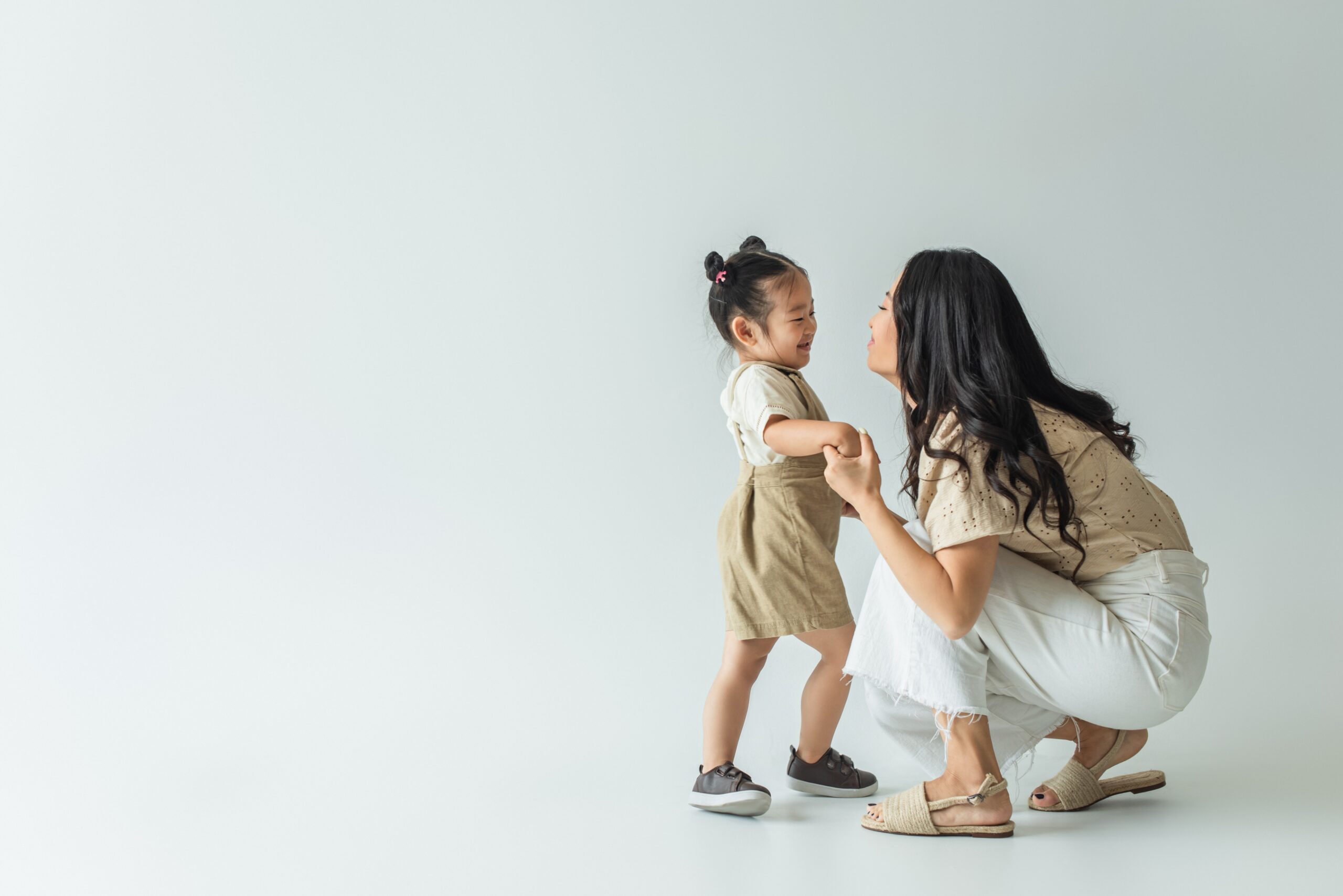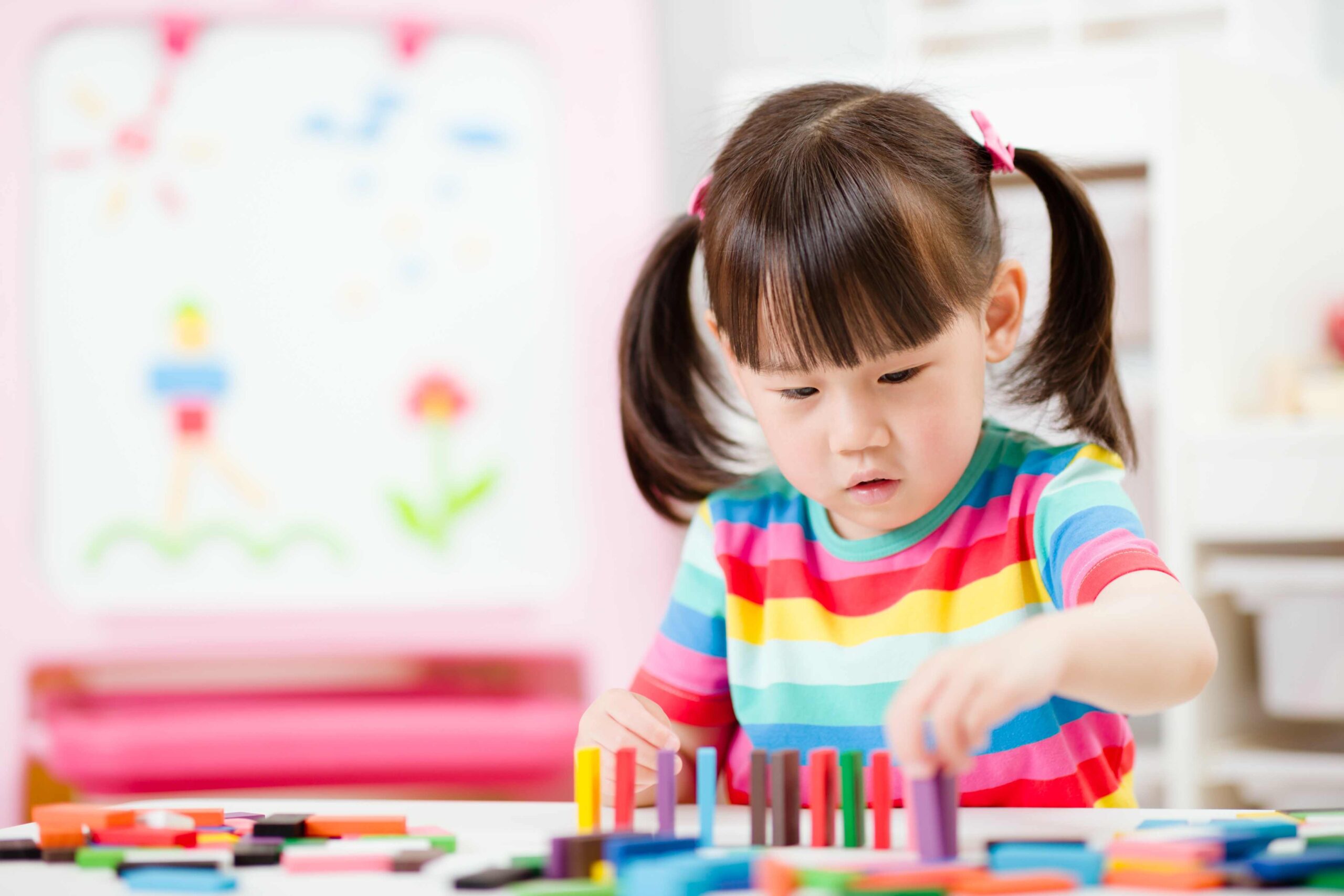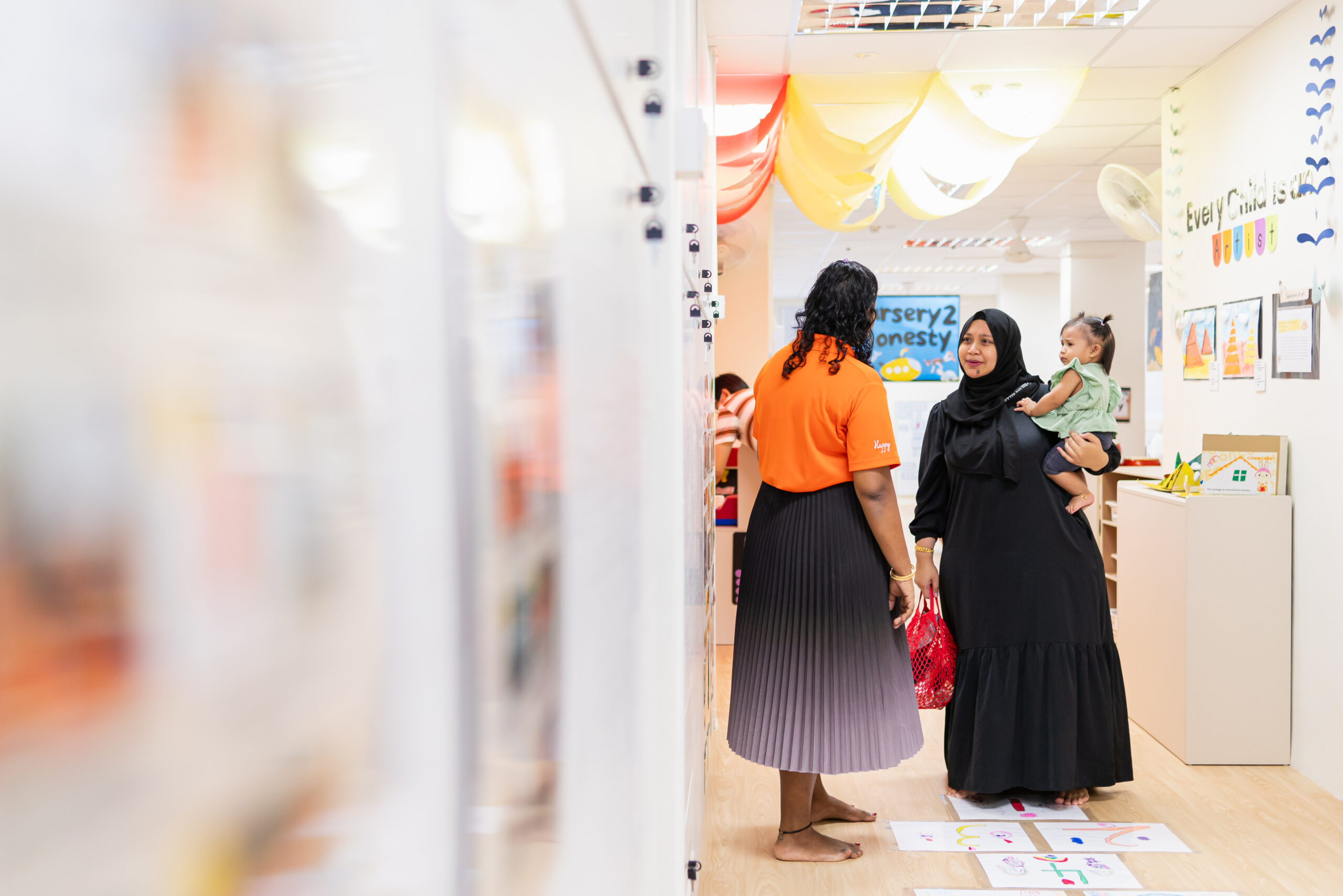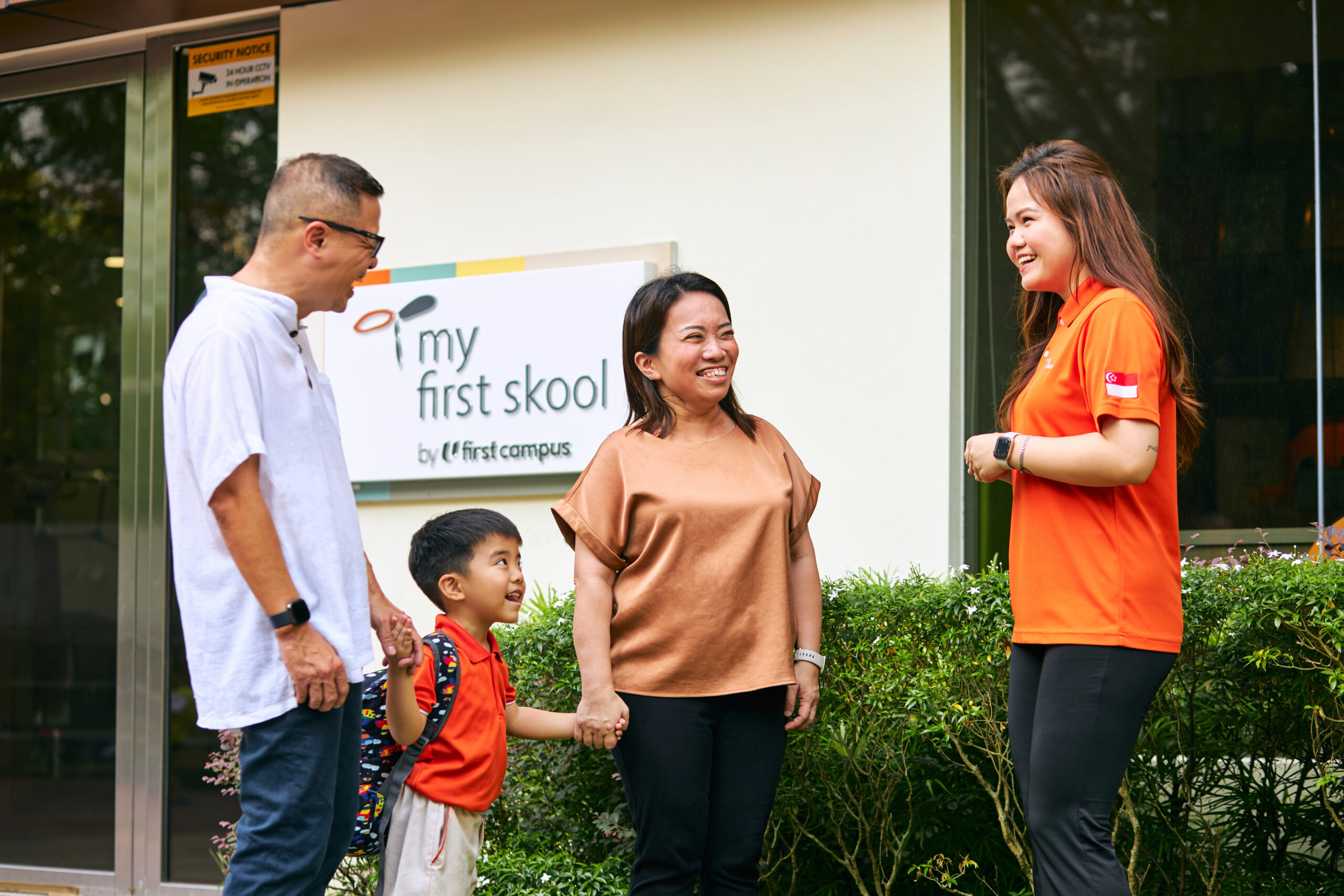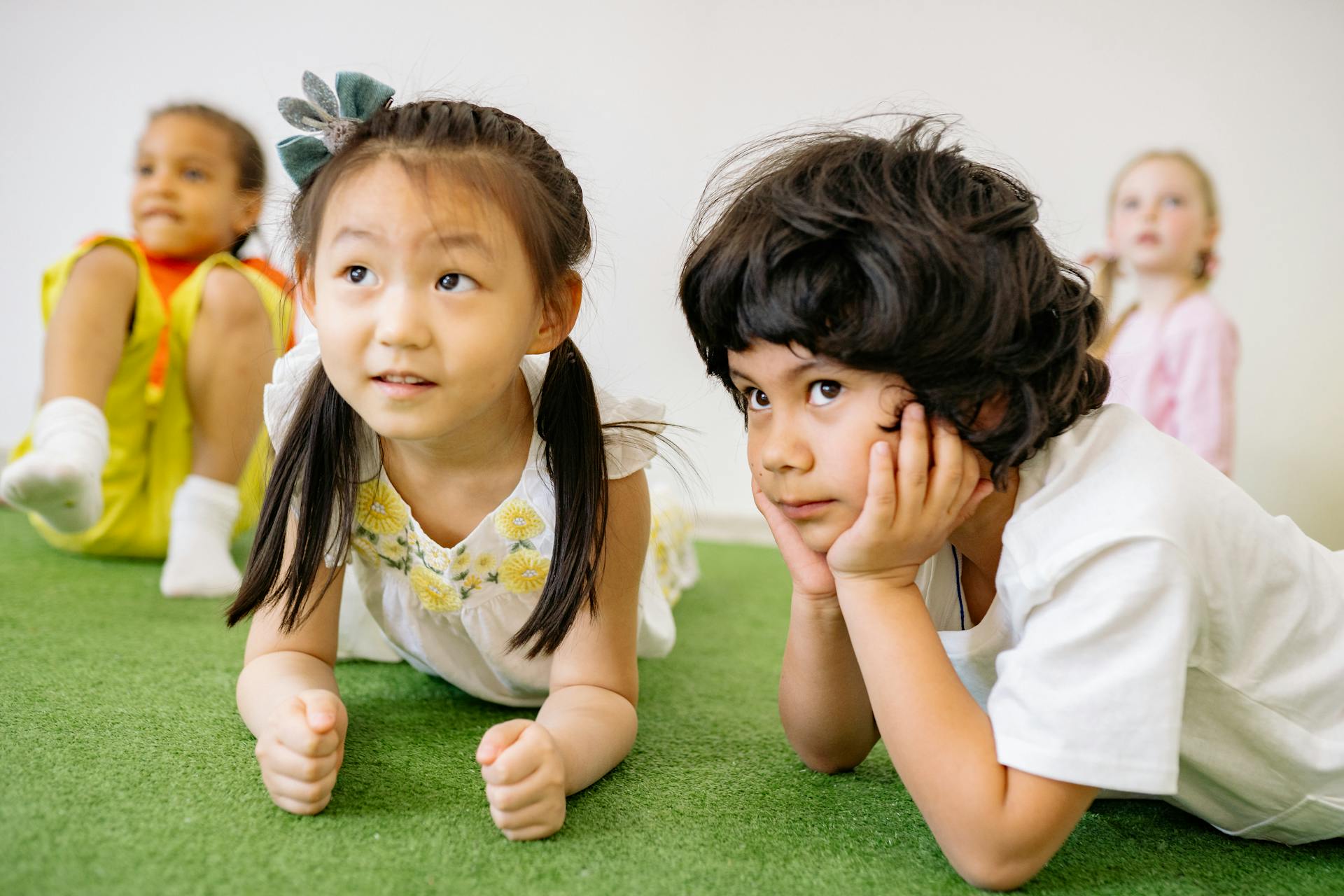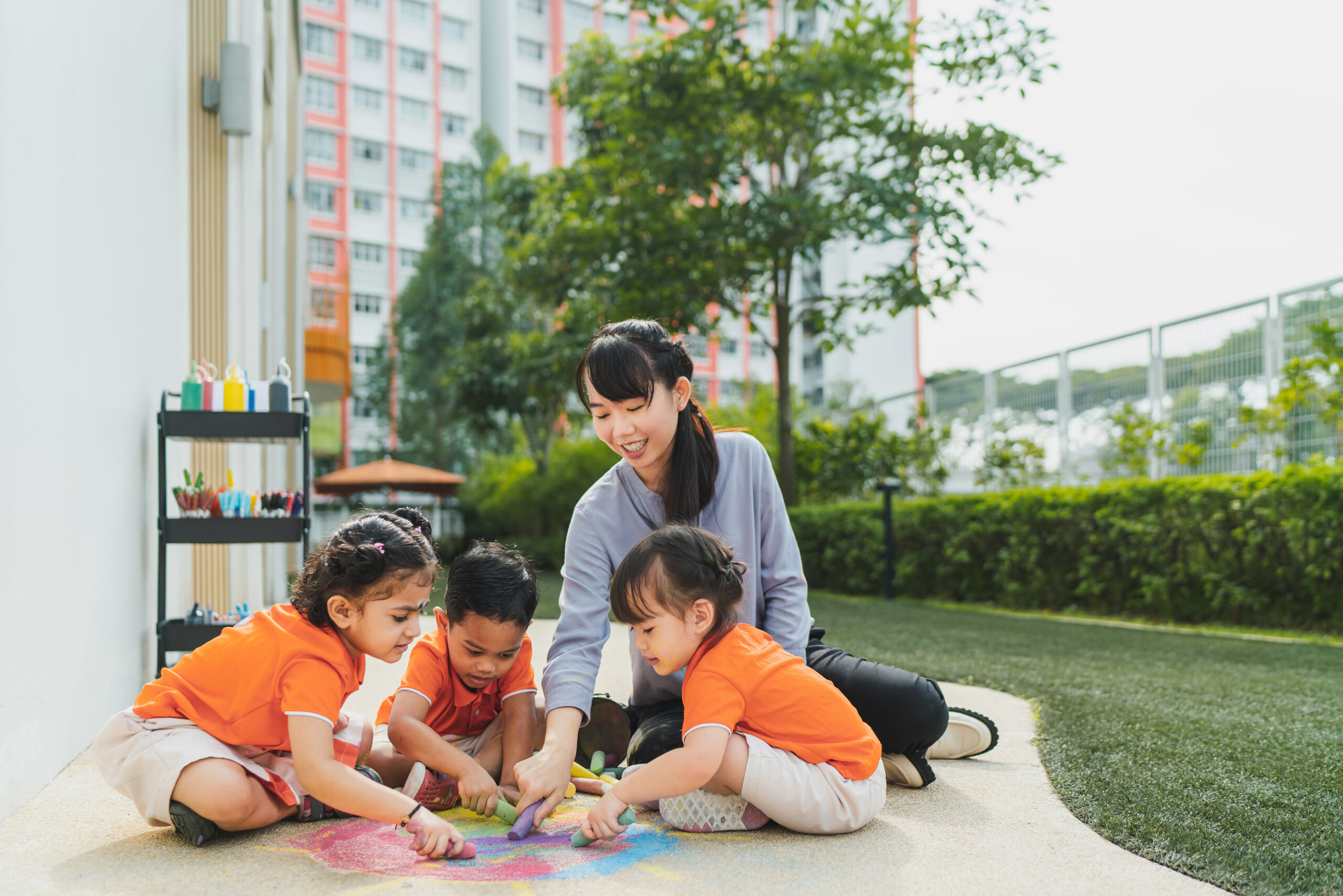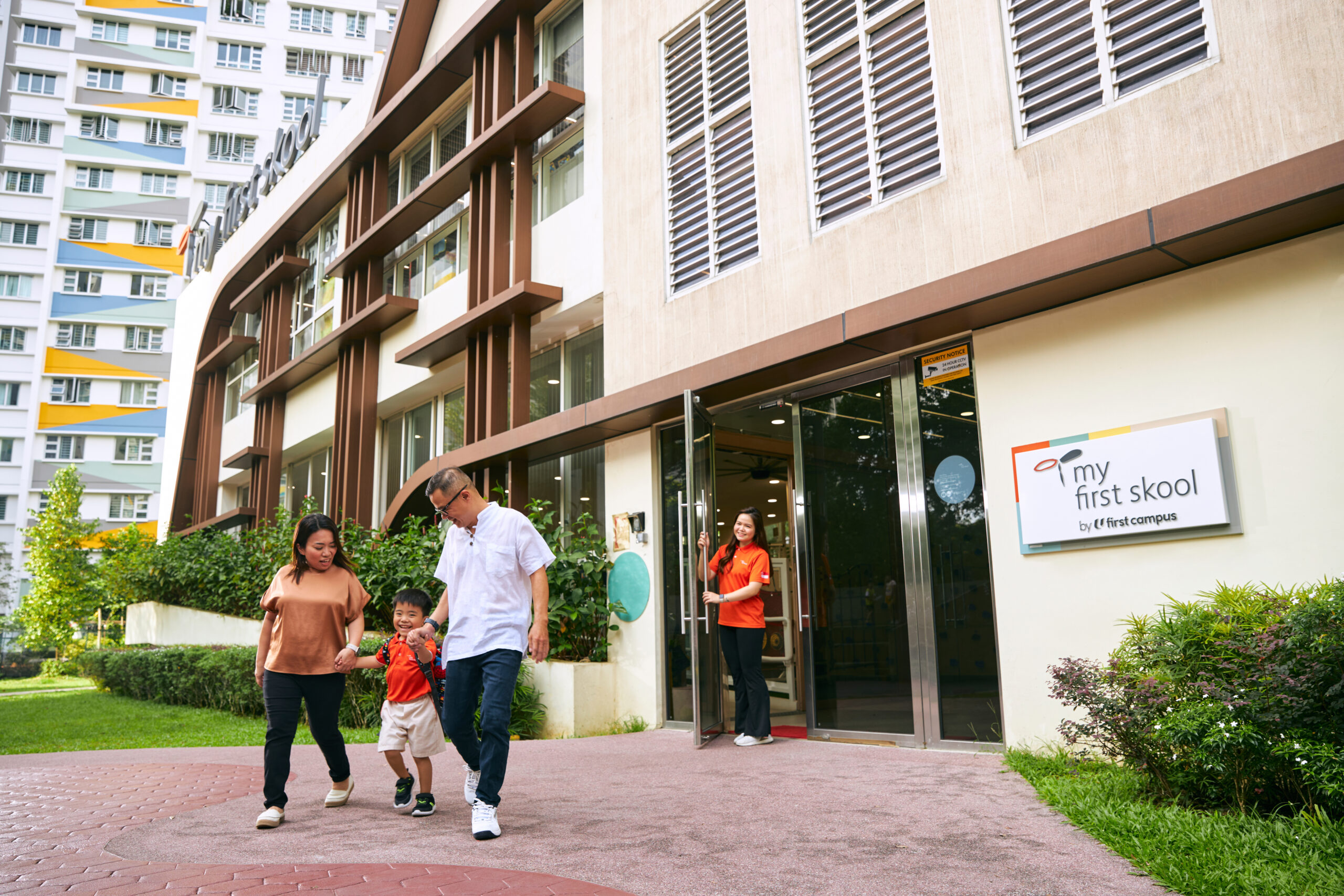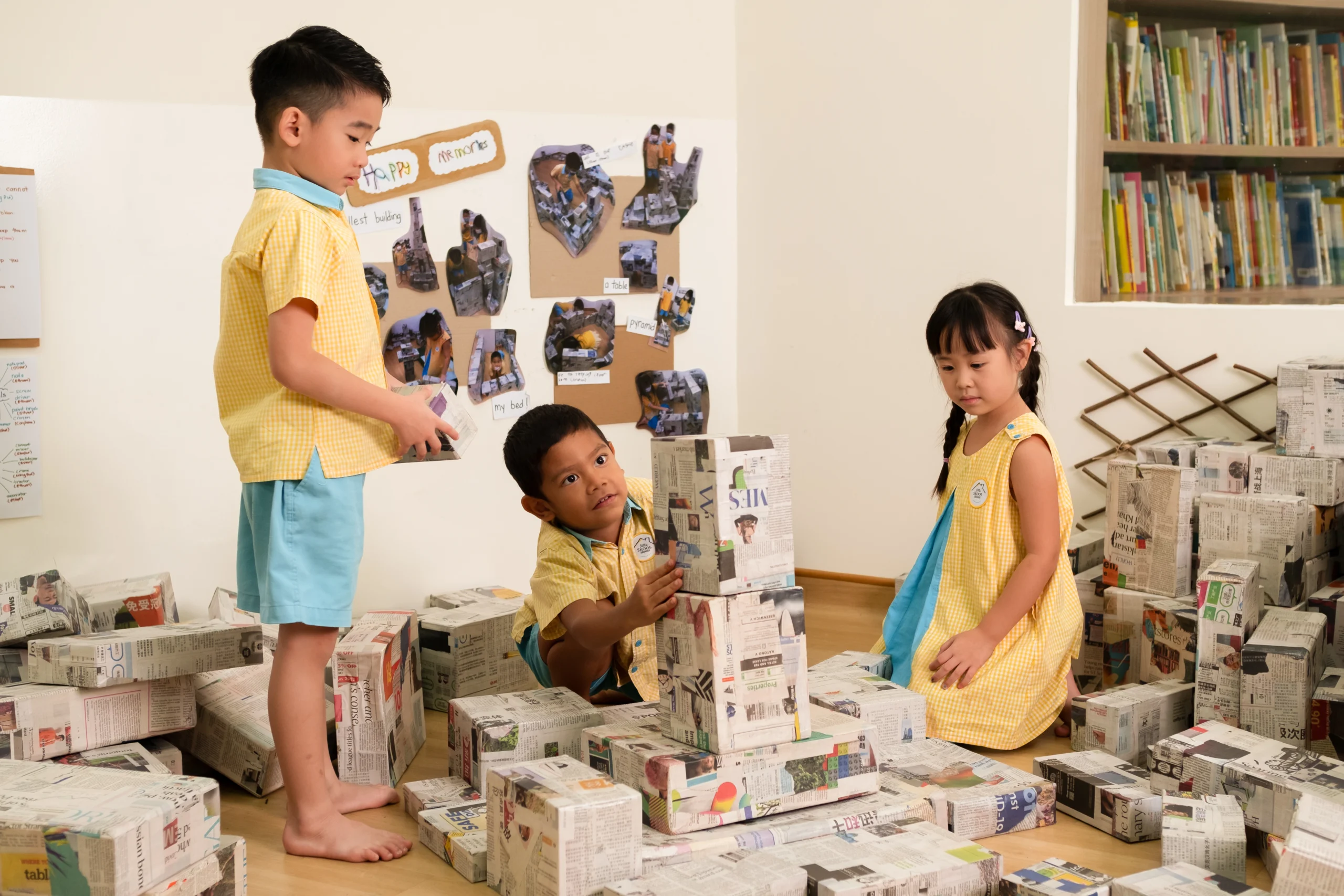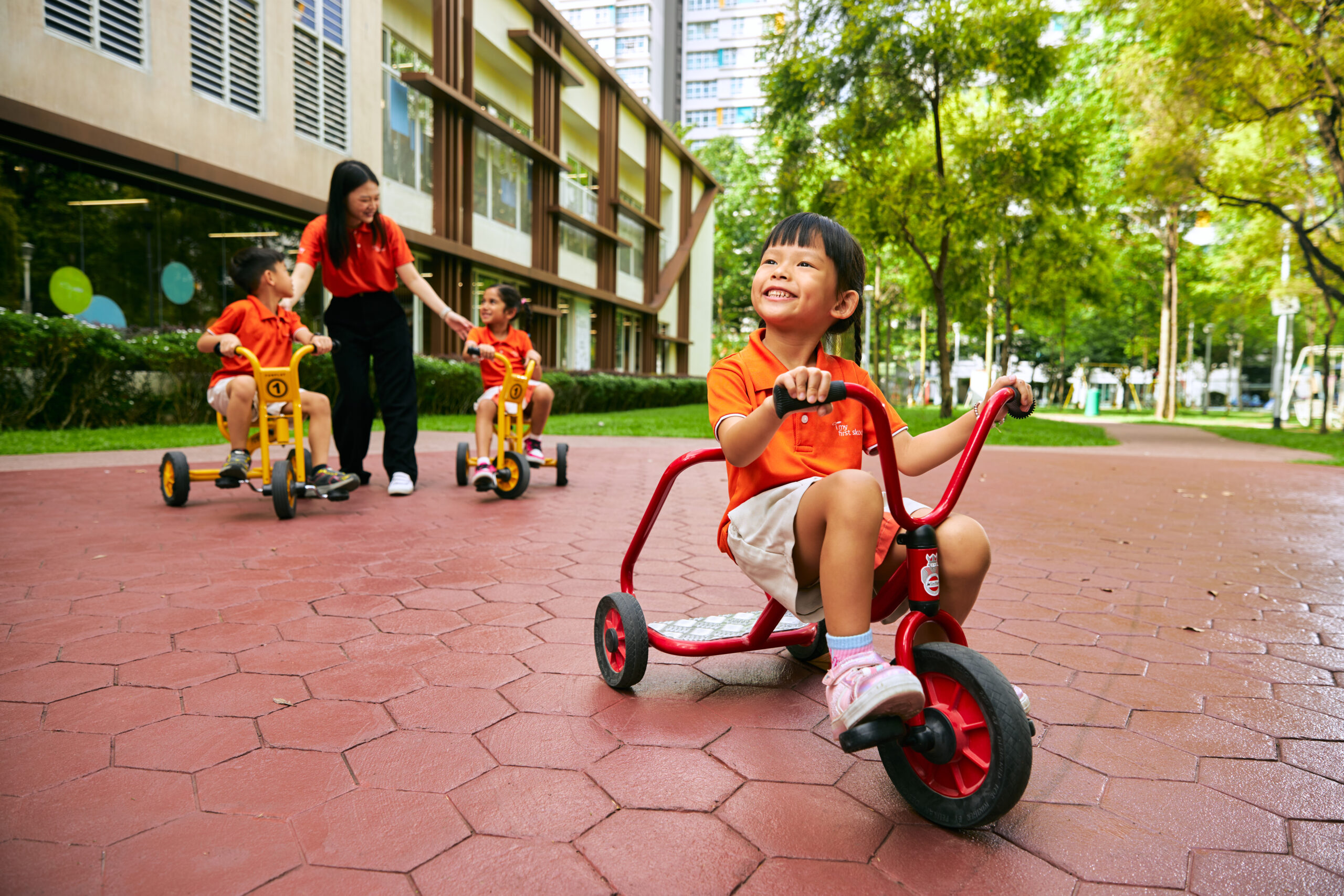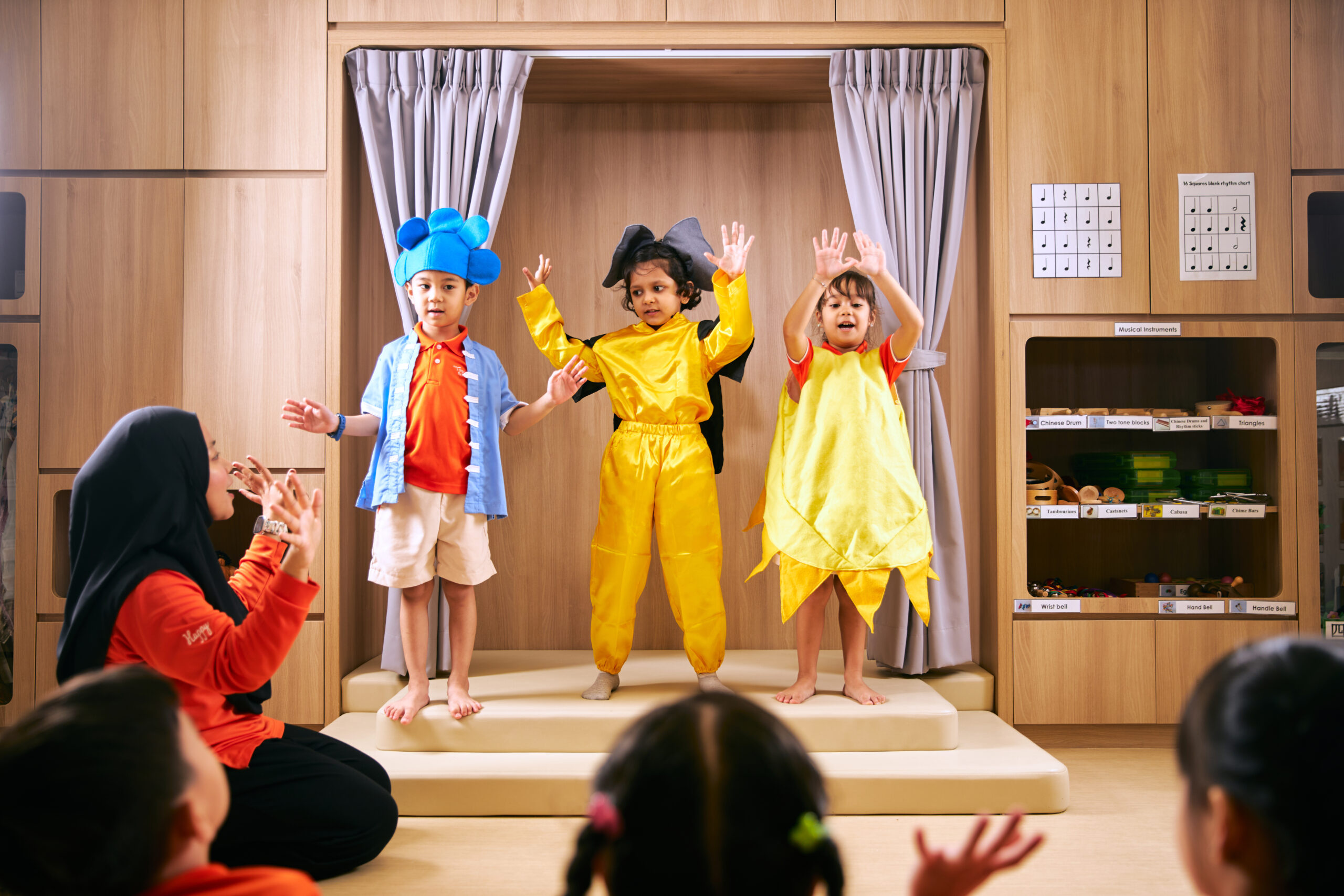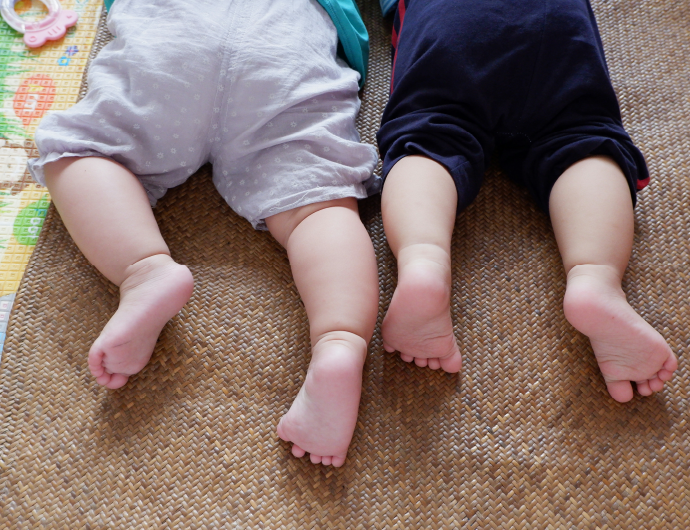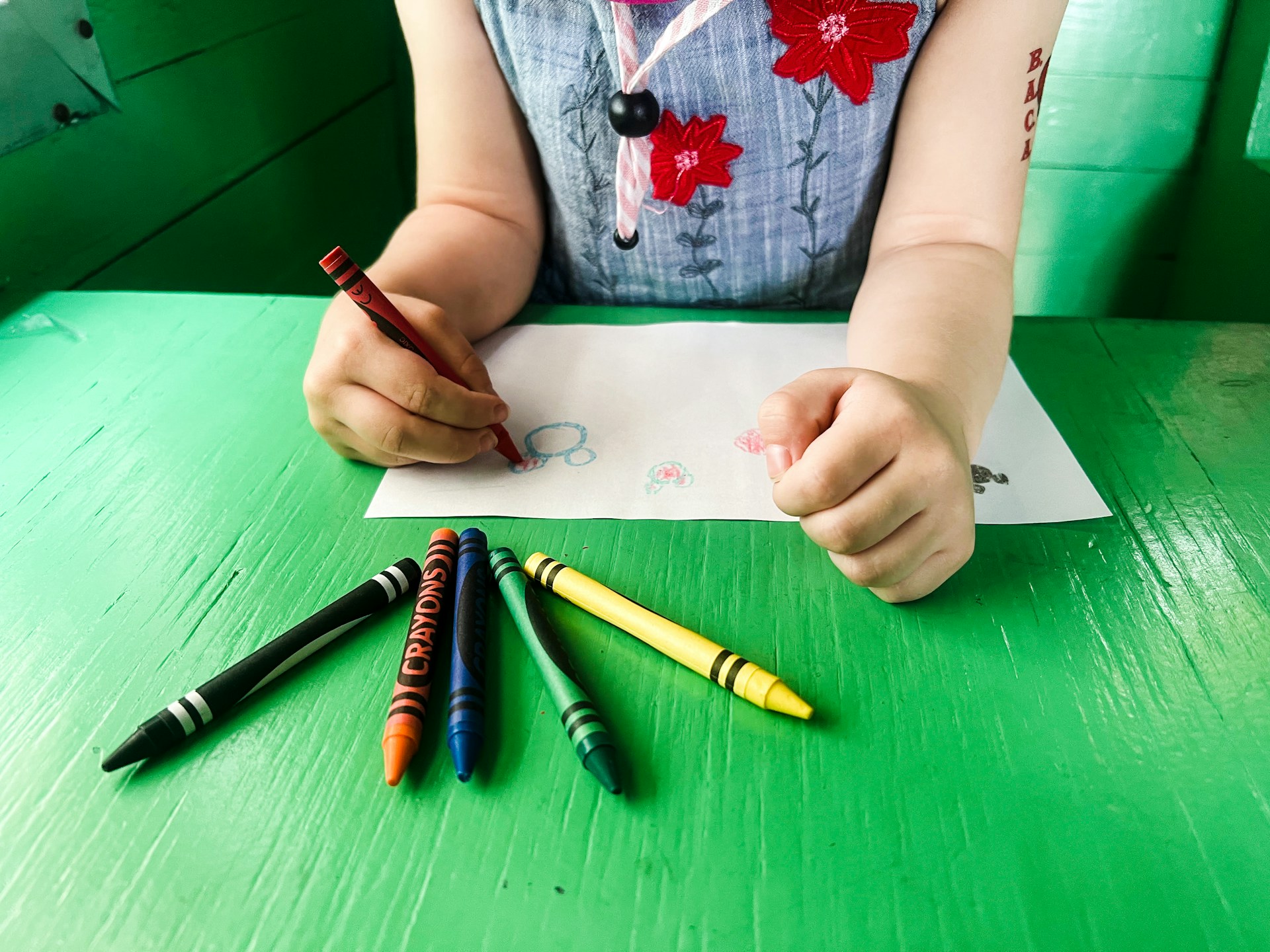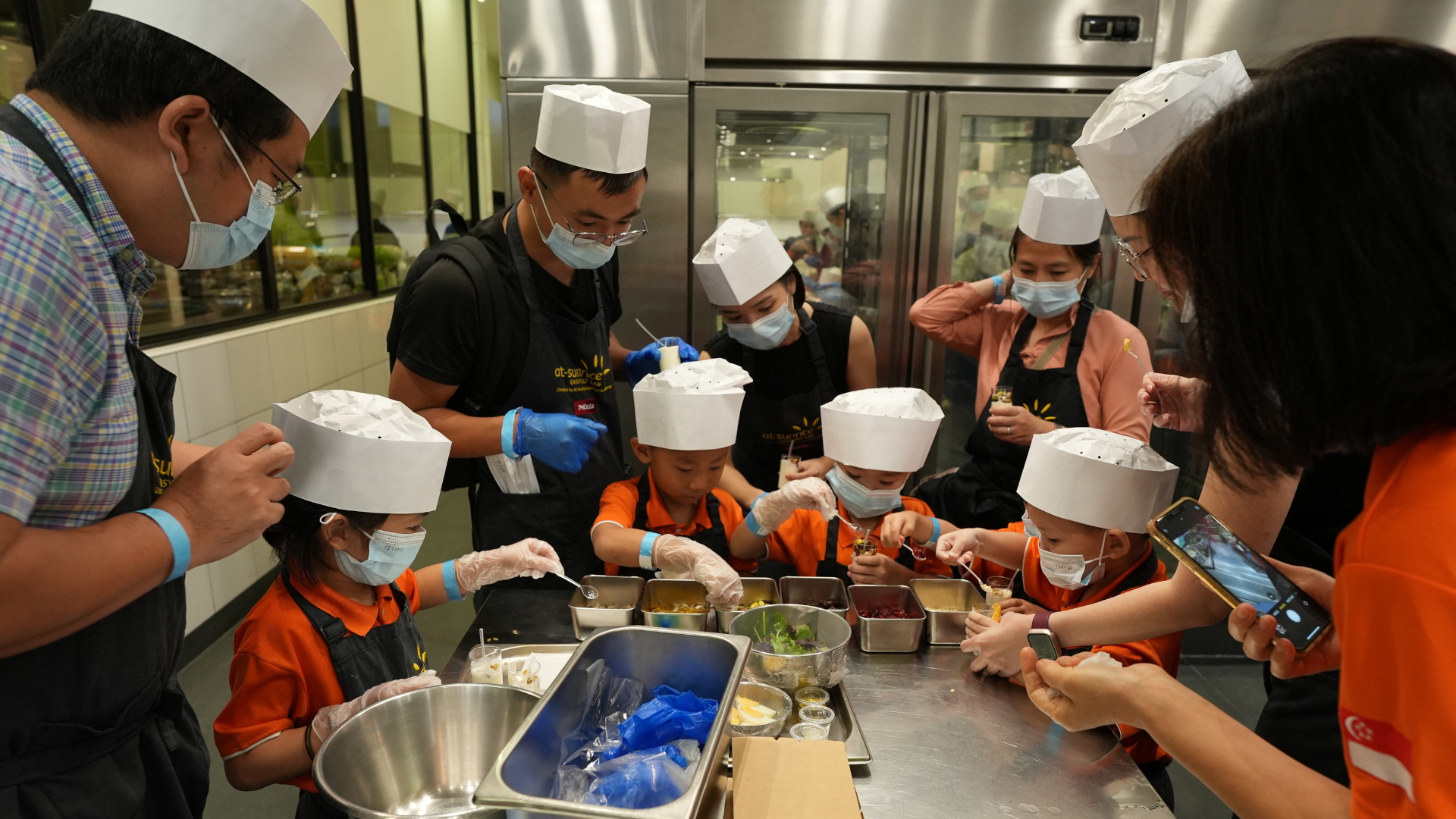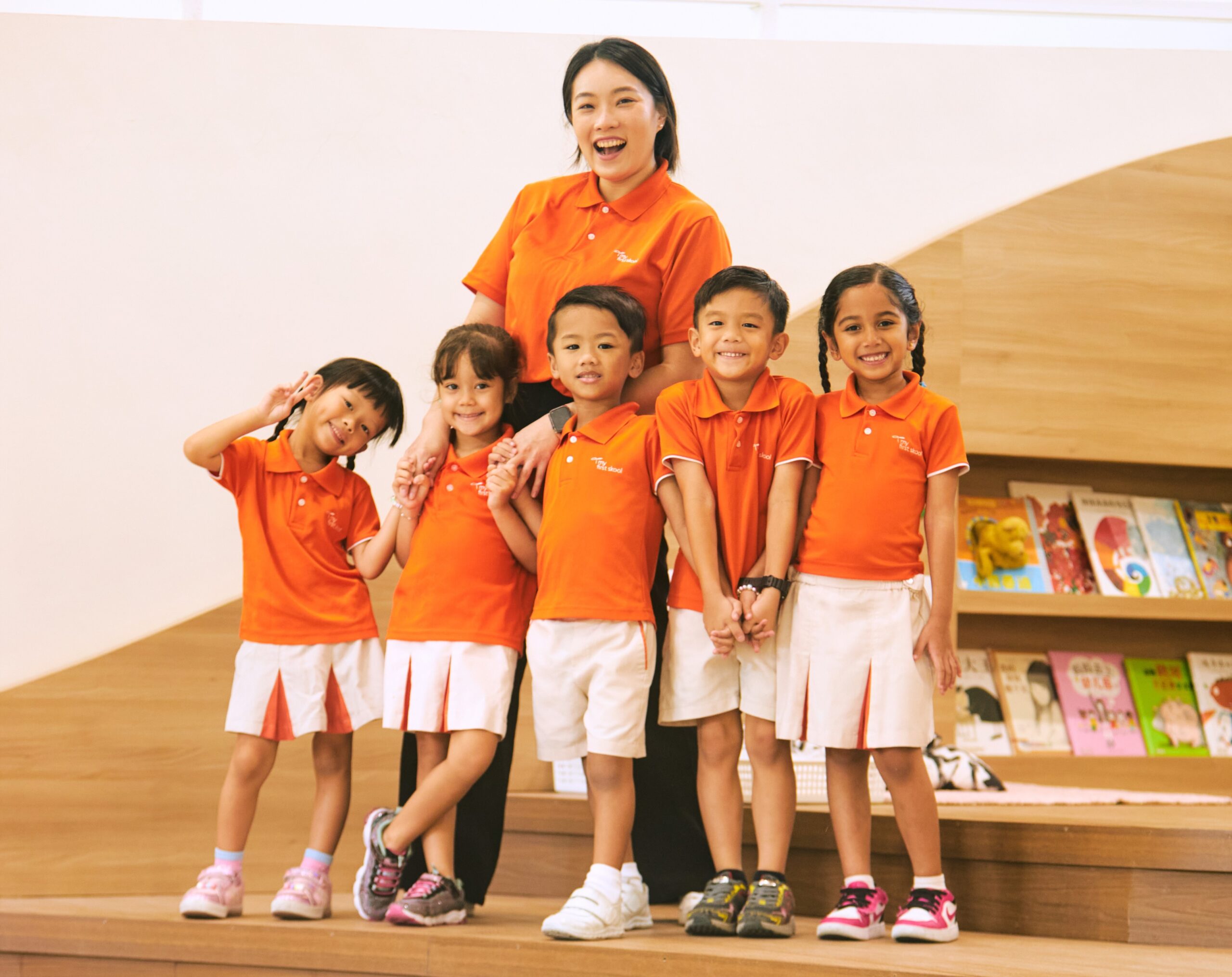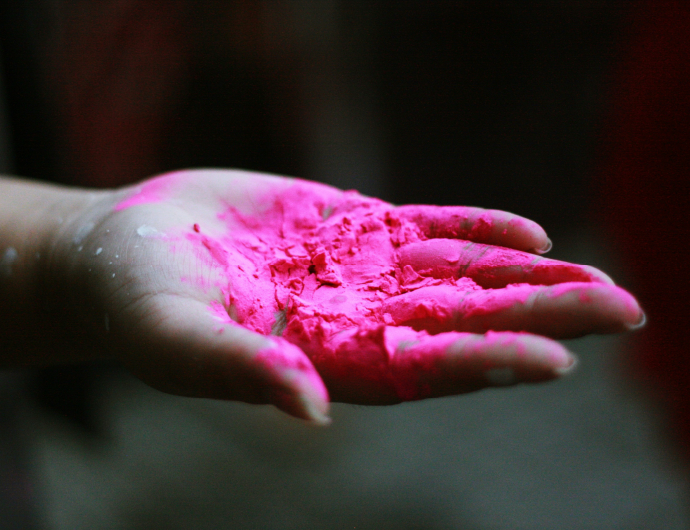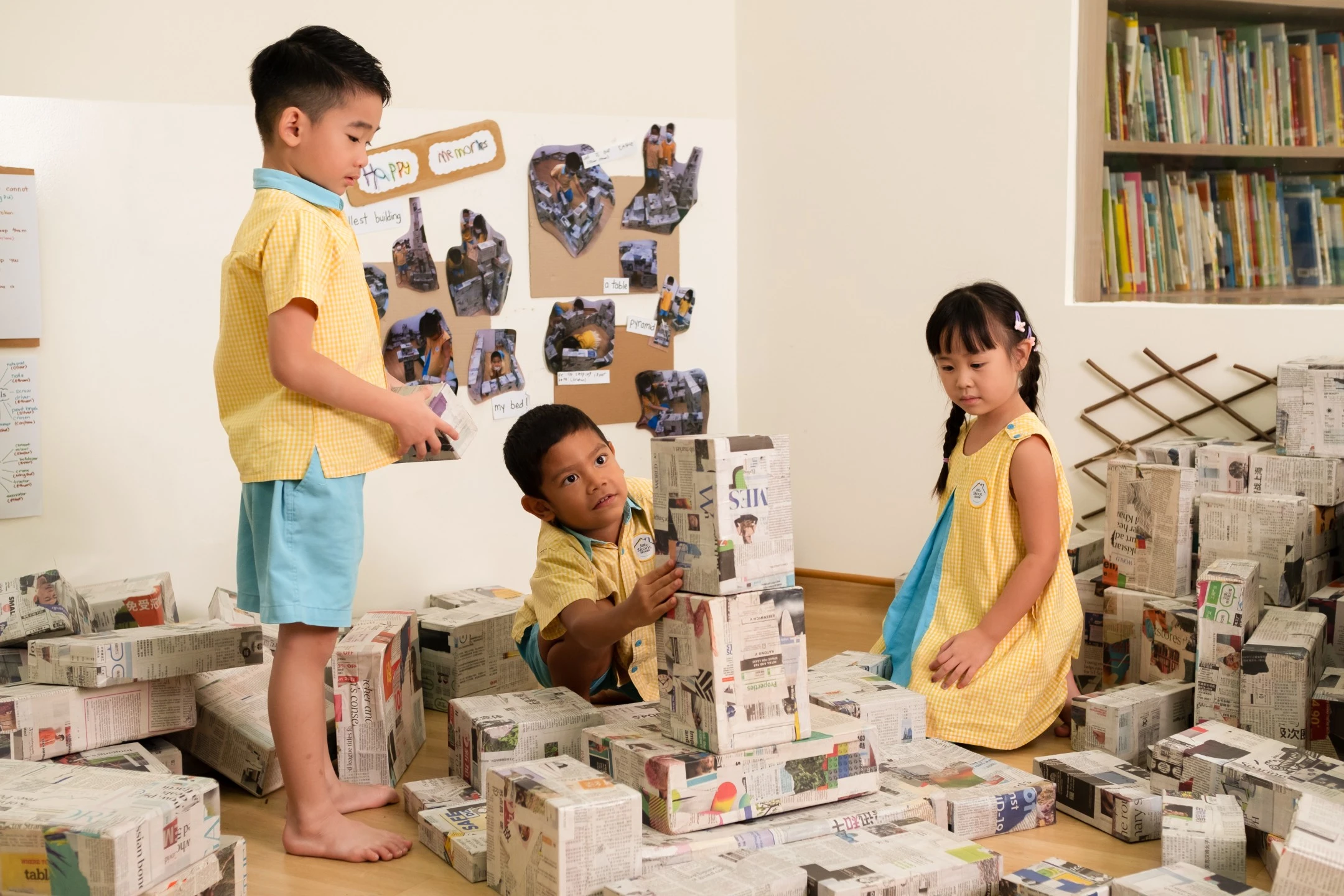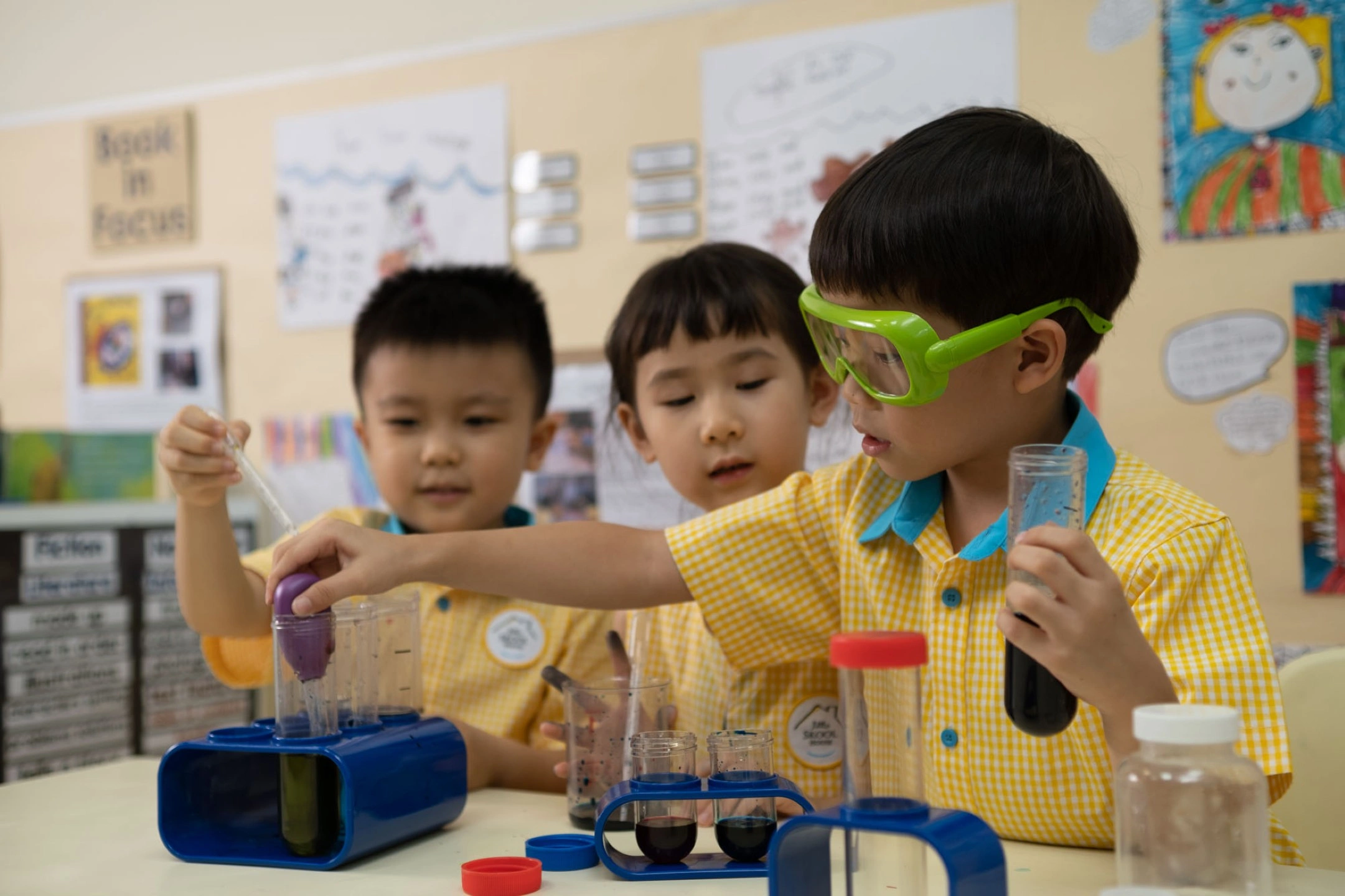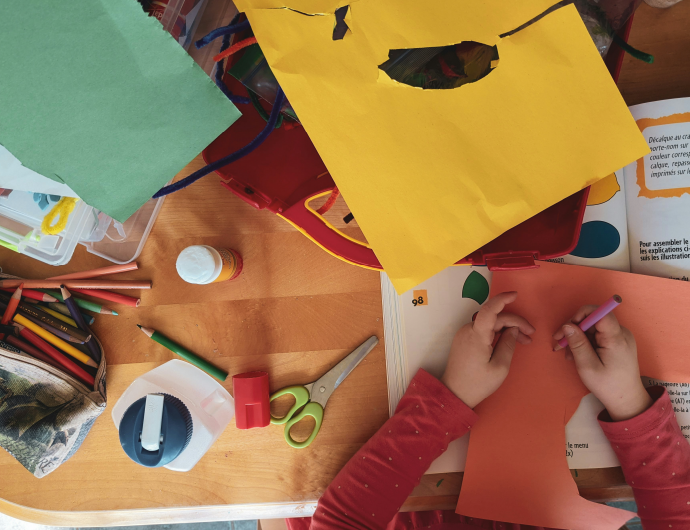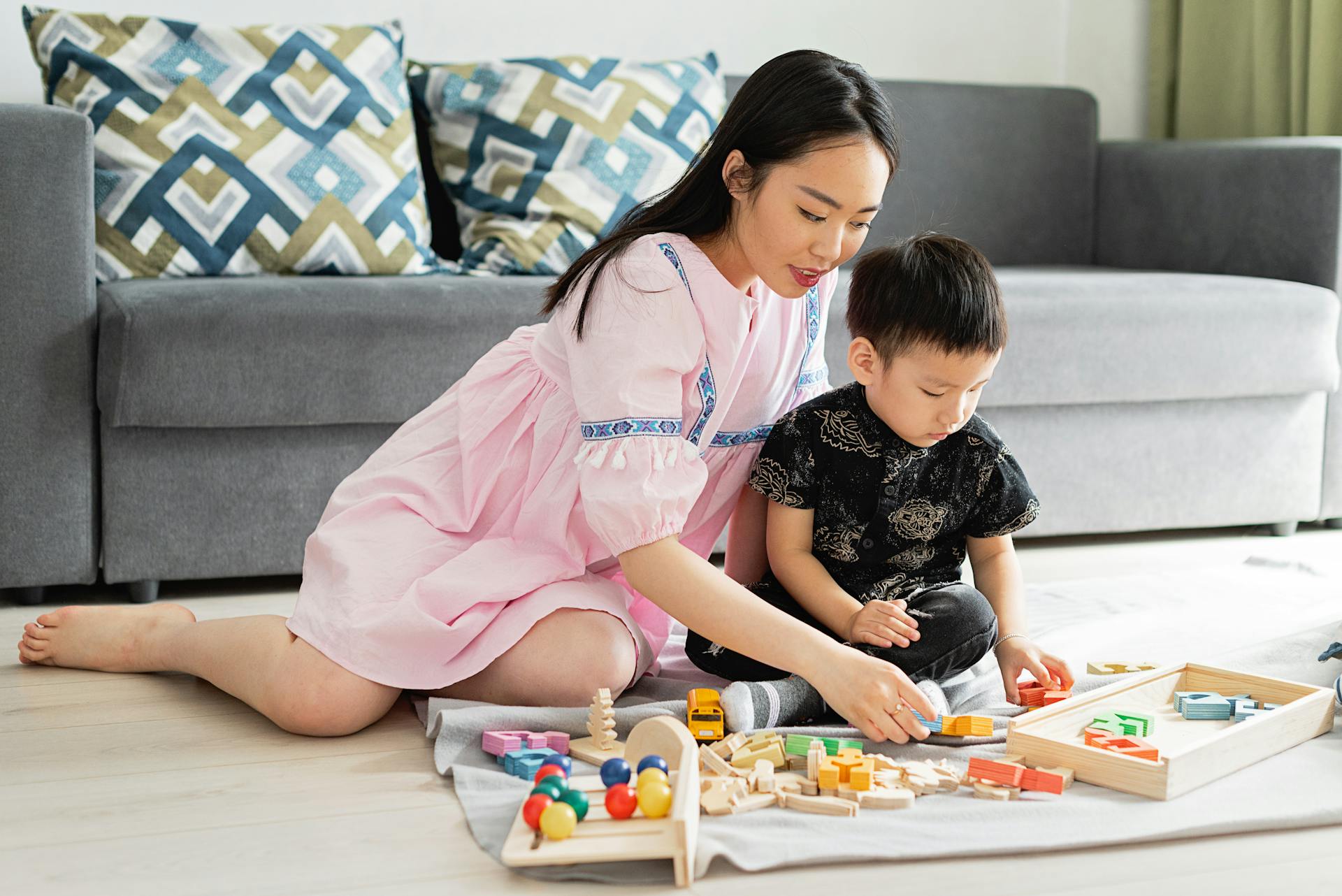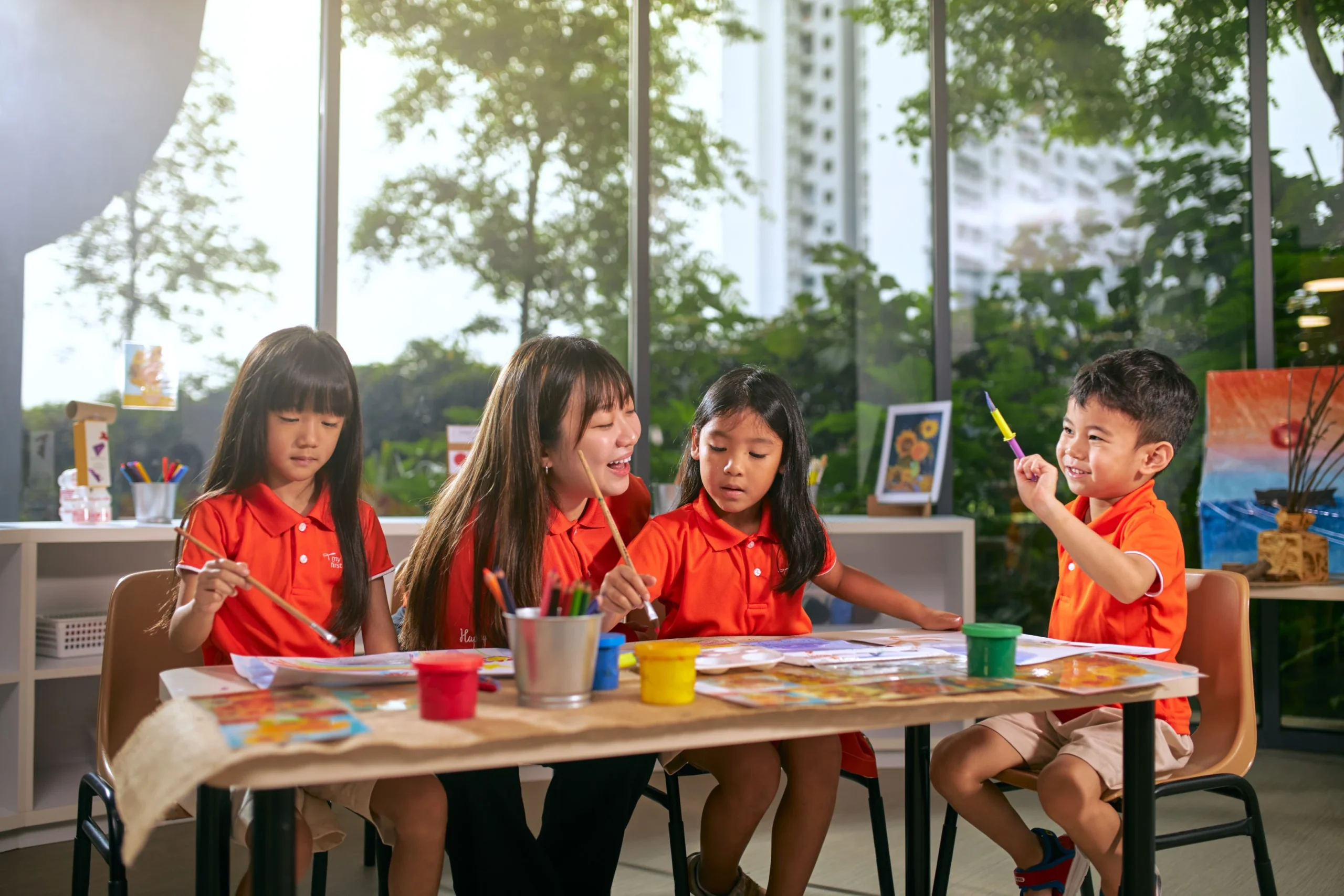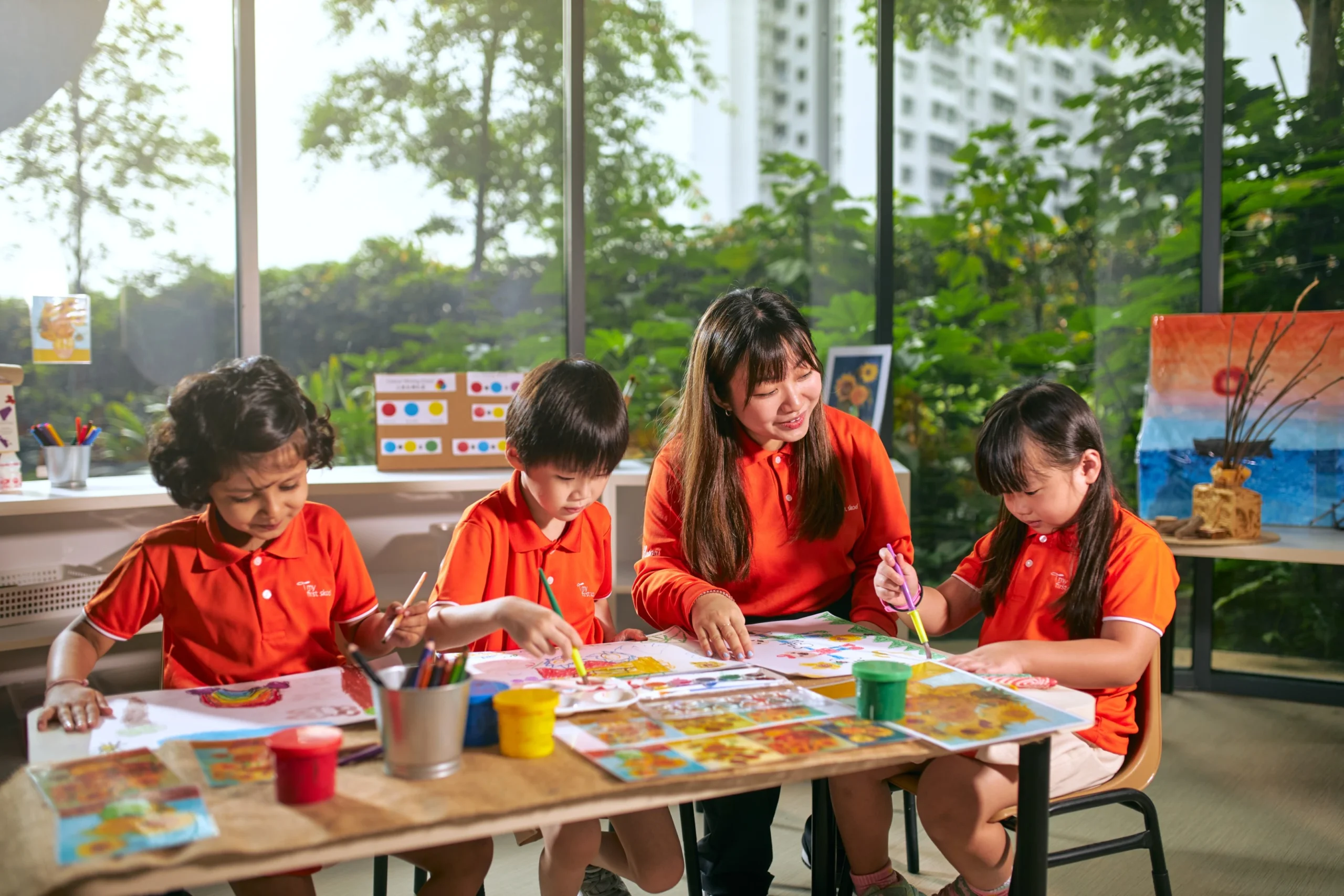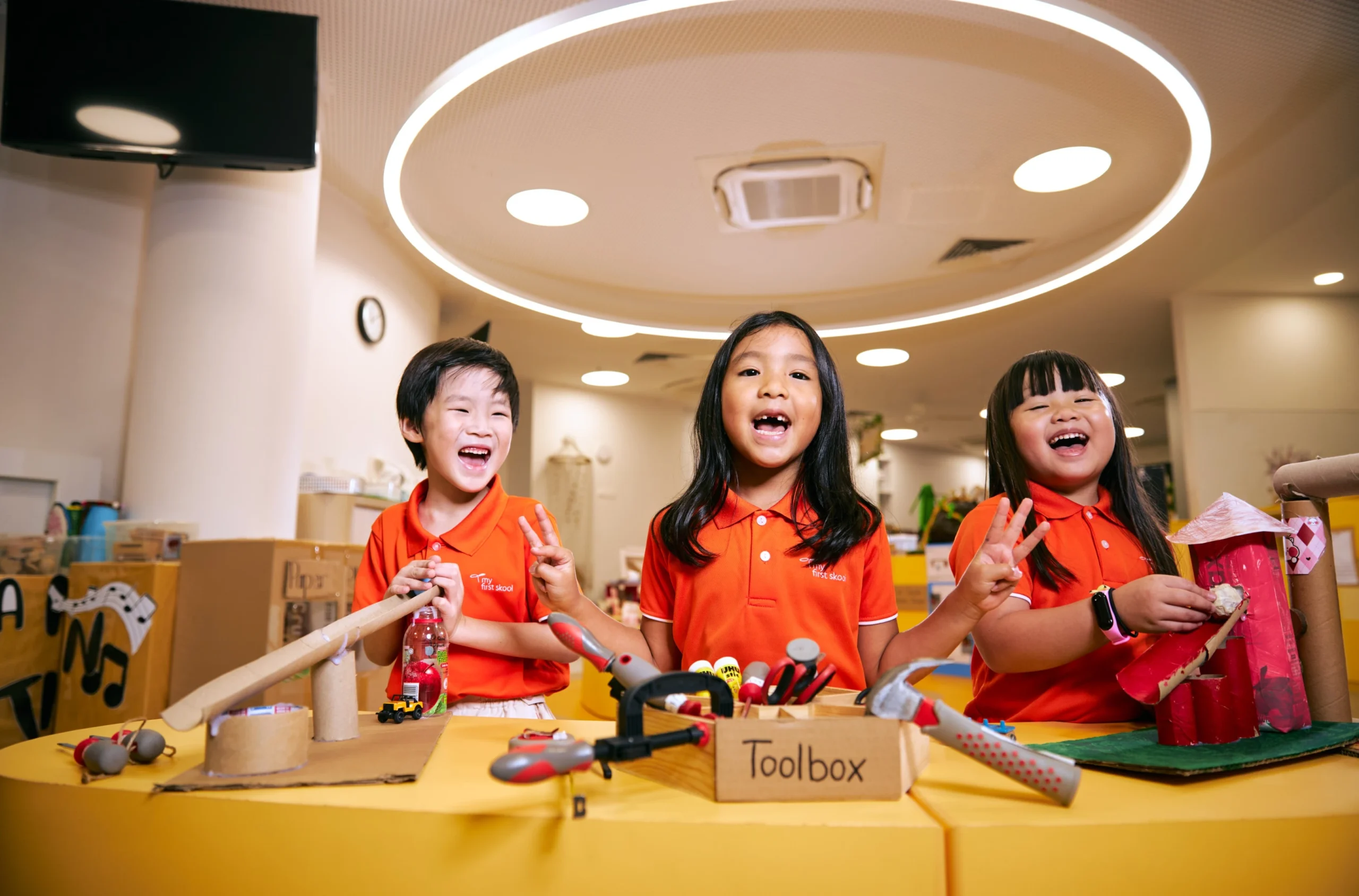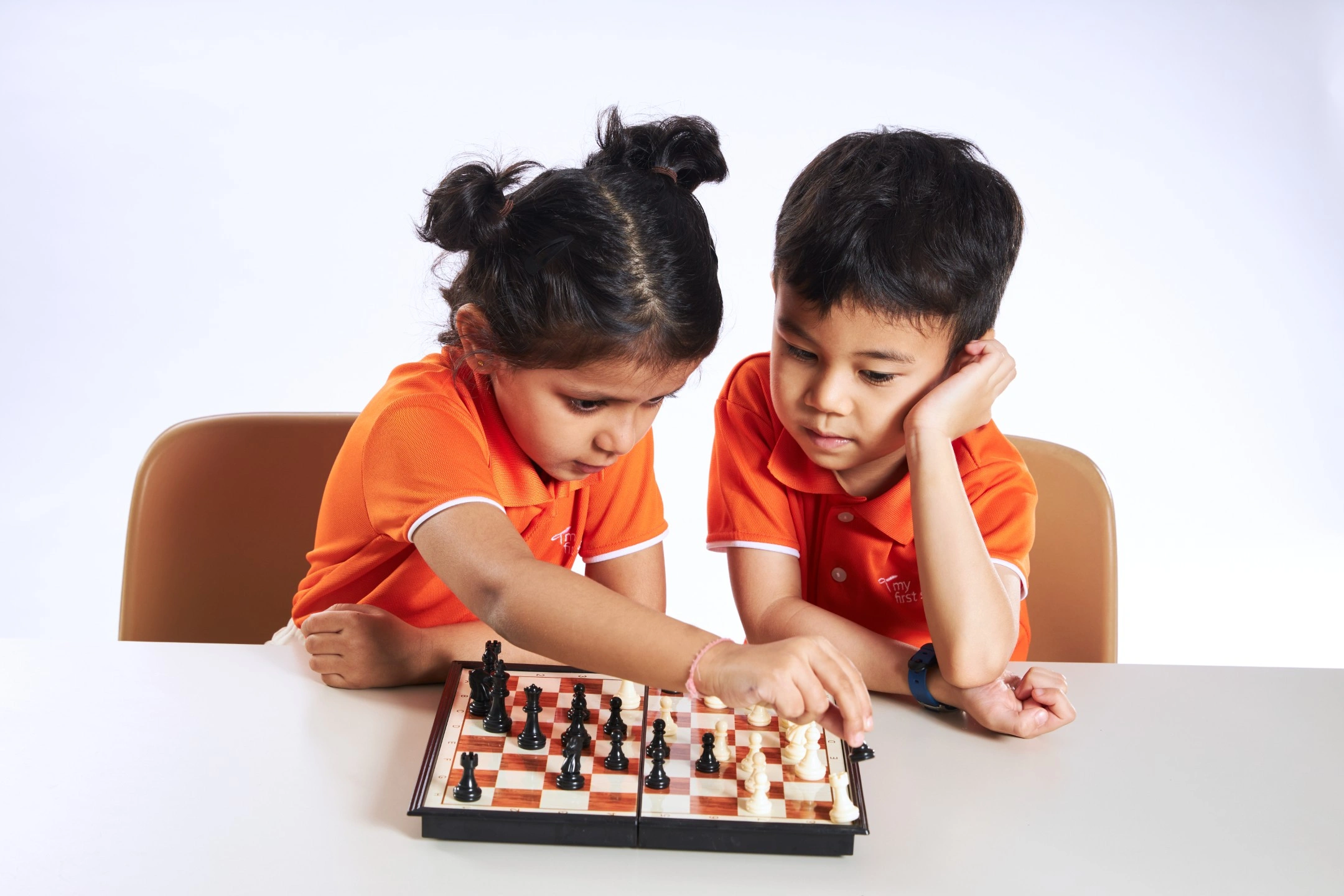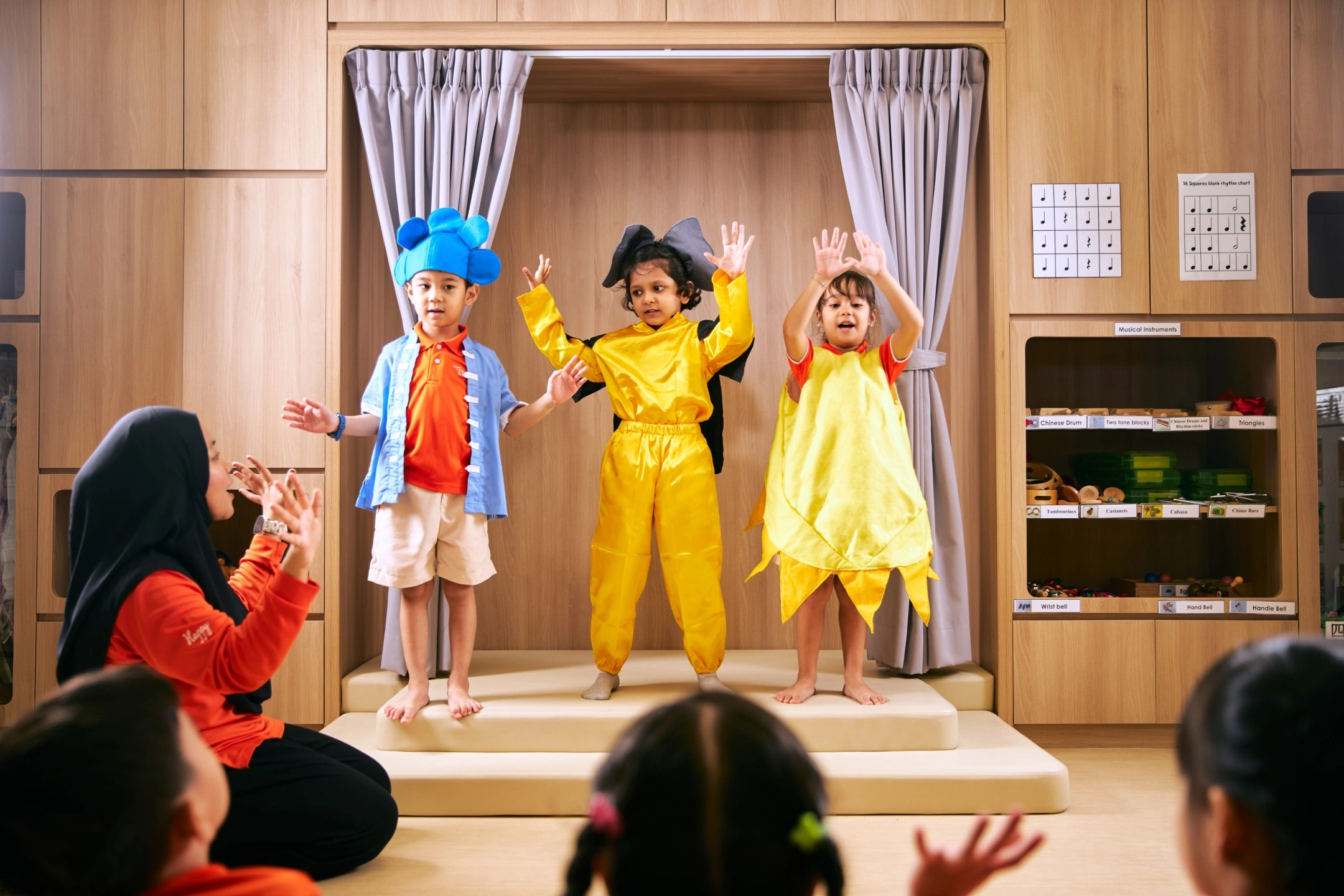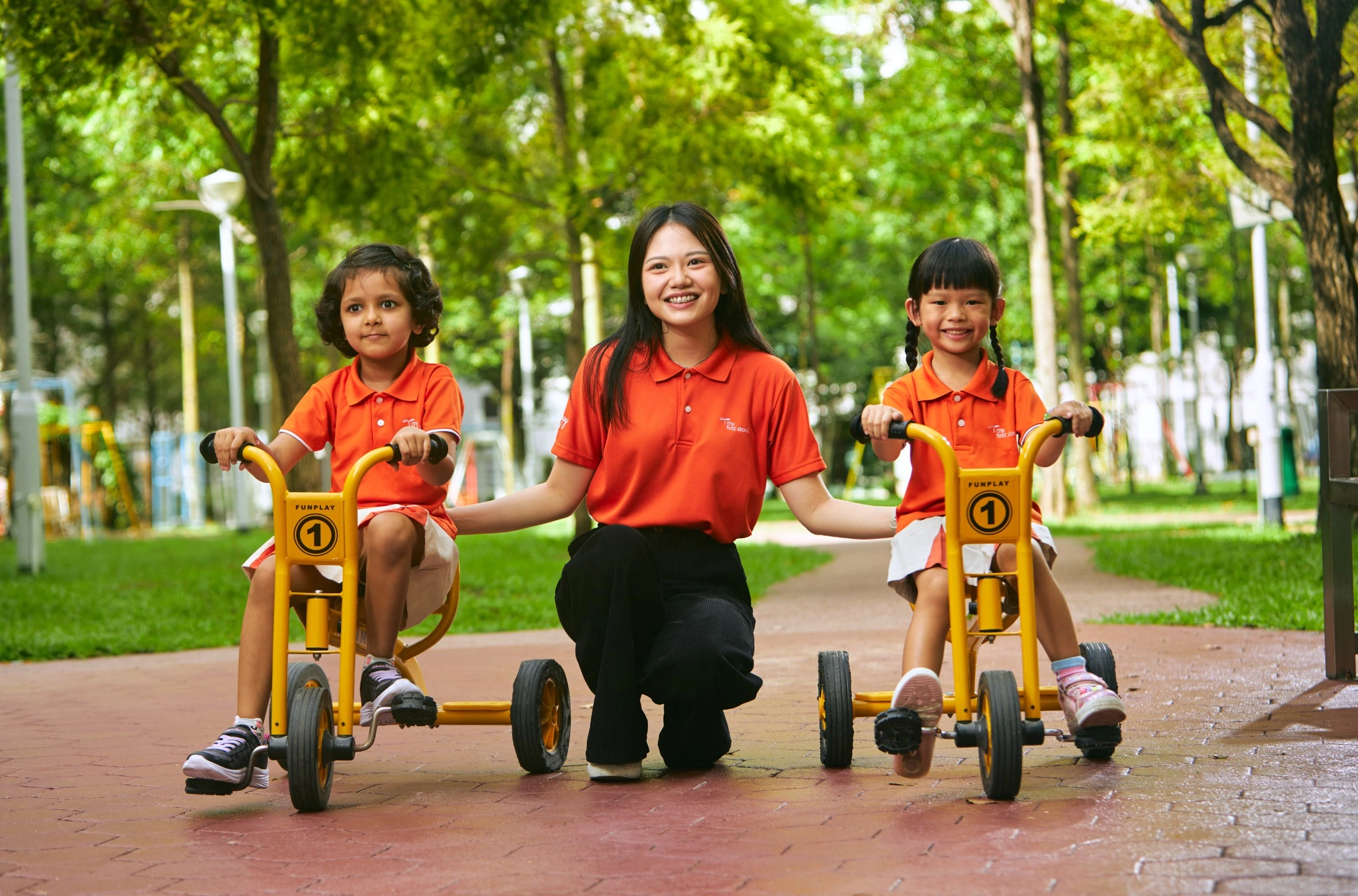How can we help?
10 Gross Motor Skills Activities for Children in Singapore (2025)
Activities
Learning Environment
Preschool
Gross motor skills are essential for a child’s physical and emotional development, helping them move confidently, maintain balance, and build strength. These skills, such as walking, jumping, and climbing, play a key role in a child’s independence and coordination.
In Singapore, where academic readiness is often emphasised from an early age, it’s important not to overlook physical development as part of a child’s overall growth.
That’s why even at My First Skool, activities that support gross motor skills are a natural part of daily learning, helping children build strength, balance, and confidence as they grow.
In this article, we’ll explore ten engaging activities to help children develop their gross motor skills.
What Are Gross Motor Skills?
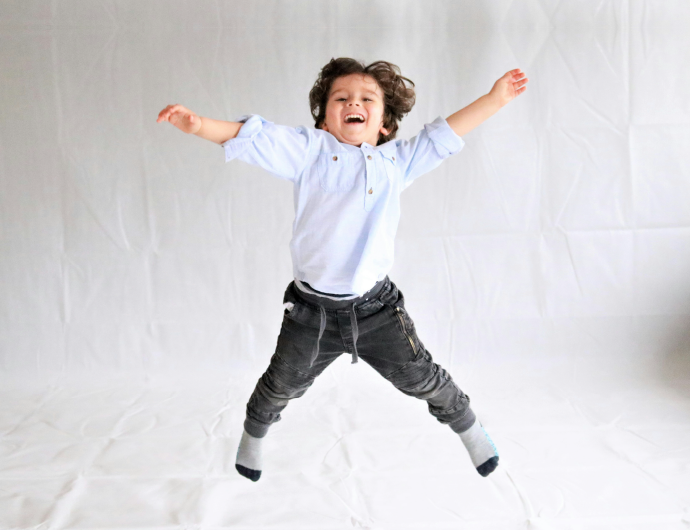
Definition of Gross Motor Skills
Gross motor skills refer to the large muscle movements we make with our bodies. Gross motor skills examples include:
- Running
- Jumping
- Climbing
- Standing
- Bending over
These skills are essential for a child’s physical development, helping them gain strength, coordination, and balance.
Importance of Gross Motor Skills in Early Childhood
Building strong gross motor skills supports mobility, balance, and overall health, and also lays the foundation for fine motor control and other critical abilities.
These skills enable children to manage classroom routines, participate confidently in school activities, and maintain a healthy balance between learning and active play — all crucial for thriving in Singapore’s fast-paced educational environment.
10 Gross Motor Skills Activities for Children in Singapore
1. Tummy Time (For Infants)
Age Range: 0–6 months
Tummy time is a simple but effective way to help infants strengthen their neck, back, and shoulder muscles.
By placing your baby on their stomach while awake, you encourage them to lift their head and eventually push up with their arms, building crucial muscles needed for later movements like crawling and walking.
As a natural progression from tummy time, belly crawling helps infants further develop their gross motor skills.
Benefits:
- Strengthens neck, back, and shoulder muscles.
- Lay the foundation for crawling and sitting up.
- Encourages head control and upper body strength.
2. Crawling Races
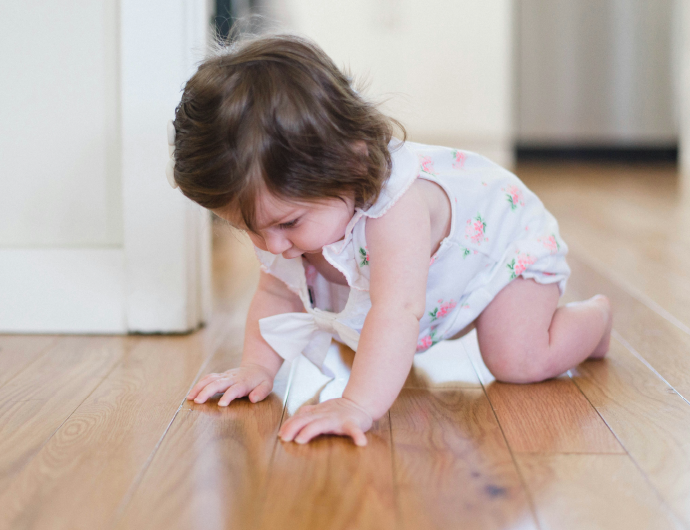
Age Range: 6–12 months
As your baby begins to crawl, encourage them to race towards a toy or a sibling.
This fun activity not only motivates movement but also strengthens muscles, improves coordination, and promotes spatial awareness.
Benefits:
- Builds coordination between arms and legs.
- Strengthens muscles necessary for crawling and walking.
- Improves spatial awareness and movement control.
3. Rolling a Ball

Age Range: 9–18 months
Rolling a ball back and forth with your child encourages hand-eye coordination and promotes physical activity. It’s a simple game, but it supports muscle control and spatial awareness as children move toward the ball and push it back.
Benefits:
- Improves hand-eye coordination.
- Develops muscle control and spatial awareness.
- Strengthens grasping and pushing abilities.
4. Jumping on Trampolines
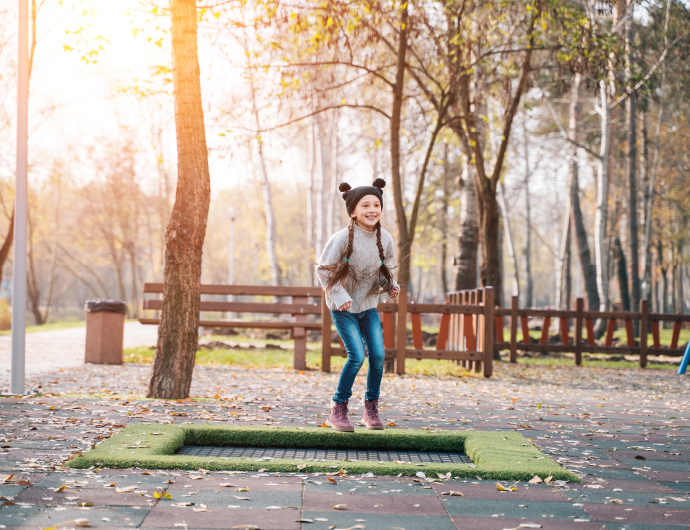
Age Range: 2–5 years
Jumping on a mini trampoline is a super fun way for children to build leg strength, improve balance, and have fun! It’s a great way to enhance physical confidence and coordination.
Benefits:
- Builds leg strength and enhances balance.
- Improves coordination and body awareness.
- Boosts physical confidence through active play.
5. Building an Obstacle Course
Age Range: 2–5 years
Create a simple obstacle course at home using cushions, tunnels, and furniture to get kids moving and promote physical activity. Encourage your child to crawl, jump, climb, and balance their way through the course. This activity promotes coordination, problem-solving, and muscle strength.
Benefits:
- Strengthens muscles and builds coordination.
- Encourages problem-solving and decision-making.
- Enhances balance and flexibility.
6. Dancing to Music
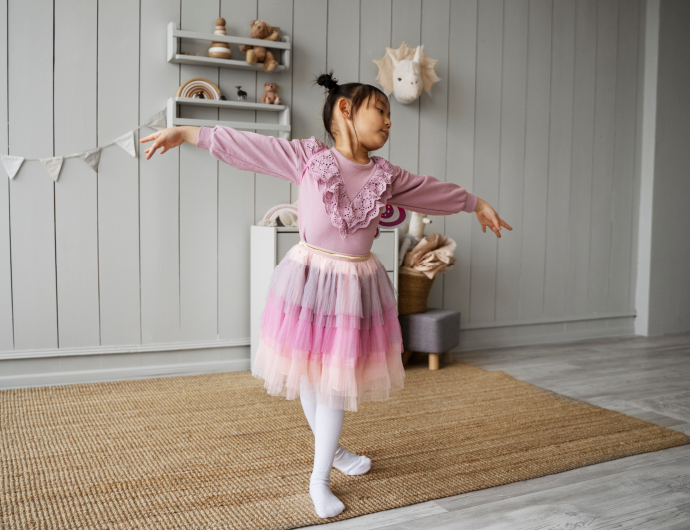
Age Range: 1–5 years
Dancing is a fun way for children to develop their large muscles, improve coordination, flexibility, and rhythm. Play some music and encourage your child to move their body to the beat. This activity also helps them learn to express themselves physically and emotionally.
Benefits:
- Strengthens core muscles and improves balance.
- Develops a sense of rhythm and coordination.
- Encourages creative expression and emotional development.
7. Walking on Different Surfaces
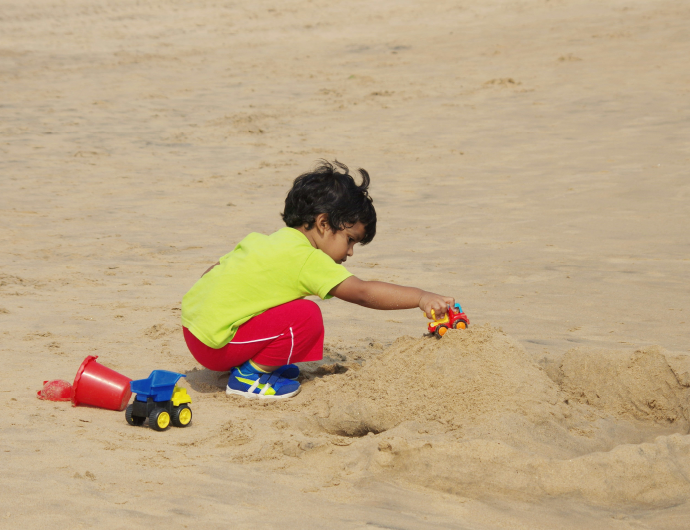
Age Range: 1–3 years
Encourage your child to walk on a variety of surfaces like grass, sand, or soft rugs. This helps develop balance, strengthens the feet and leg muscles, and improves spatial awareness.
Benefits:
- Strengthens the feet and leg muscles and improves coordination.
- Enhances balance and spatial awareness.
- Encourages sensory exploration through different textures.
8. Throwing and Catching Games
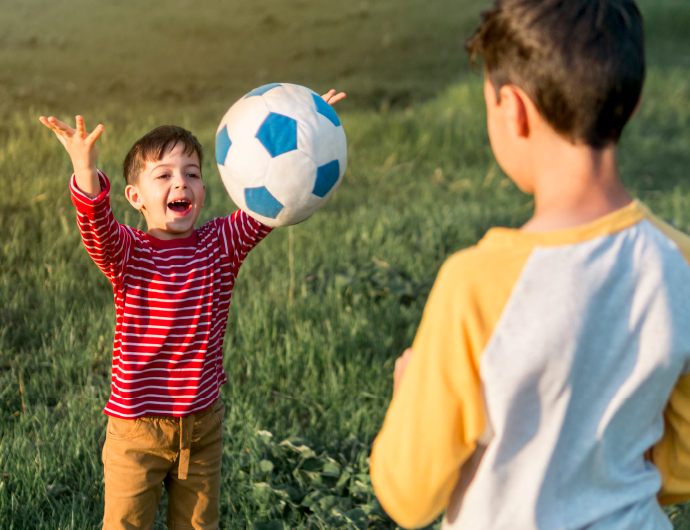
Age Range: 2–5 years
Introduce simple throwing and catching games with soft balls or beanbags. These games help children develop hand-eye coordination and improve motor planning as they learn to time their movements.
Benefits:
- Improves hand-eye coordination and focus.
- Develops timing and motor planning.
- Encourages teamwork and social interaction.
9. Climbing Activities
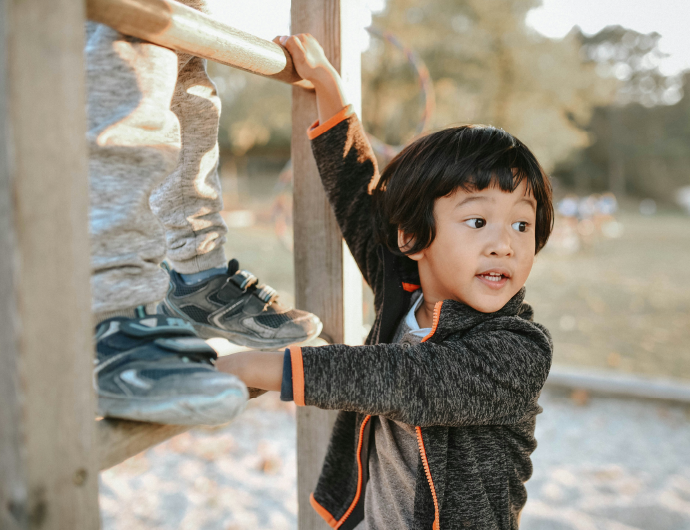
Age Range: 2–5 years
Climbing activities, whether on playground equipment or safe indoor structures, are fantastic for managing body weight, building strength, balance, and spatial awareness. These activities help children develop confidence as they explore their physical limits.
Benefits:
- Enhances muscle strength, especially in the arms and legs.
- Improves balance and coordination.
- Builds confidence through physical challenges.
How My First Skool Incorporates It: My First Skool provides safe, supervised climbing opportunities in their outdoor play areas, where children can enjoy physical challenges while building confidence.
10. Balance Beam Fun
Age Range: 3–5 years
Balance beams help children learn to stand and balance effectively, improving their stability and coordination. Children can start by balancing on a low beam and progress to more challenging ones as they improve.
Benefits:
- Strengthens core muscles and improves balance.
- Enhances focus and concentration.
- Encourages spatial awareness and movement planning.
Developing Gross Motor Skills Beyond Your Home
While home activities are a great way to support gross motor development, consistent opportunities to move, play, and build strength in a preschool setting help reinforce these skills even more.
That’s why at My First Skool, physical play is a natural part of our daily environment, giving children the space to grow confidently and steadily.
How preschools offer activities to develop children’s gross motor skills
Building Physical, Cognitive, and Emotional Growth
Gross motor skills are crucial for a child’s overall development. Activities like running, jumping, and climbing build strength, coordination, and confidence, while also fostering problem-solving and emotional regulation. Gross Motor Activities are monitored and conducted by teachers to ensure safety as well.
A Holistic Approach to Development
Physical activities at My First Skool support more than just physical growth. As children develop their gross motor skills, they also enhance cognitive abilities, emotional regulation, and social skills. These activities help children understand spatial relationships, build creativity, and learn how to make decisions and solve problems.
Boosting Confidence and Independence
Mastering gross motor skills like walking and jumping boosts a child’s confidence. With each milestone, children feel more capable and independent. Whether playing with friends or exploring new tasks on their own, these skills empower children to take on challenges with confidence and assurance.
From Playtime to Confidence: Nurturing Gross Motor Skills at My First Skool
At My First Skool, we understand that every step of your child’s development is significant.
As your child embarks on their journey of growth and exploration, developing strong gross motor skills is fundamental to their overall development.
Gross motor skills lay the foundation for a child’s ability to engage with the world around them, fostering emotional regulation, problem-solving, and social interaction.
Through incorporating gross motor skill activities into our preschool curriculum, we provide a holistic learning experience that empowers children to explore, take on new challenges, and grow with confidence.
Over 160 Centres Islandwide – Quality Childcare, Minutes from Home
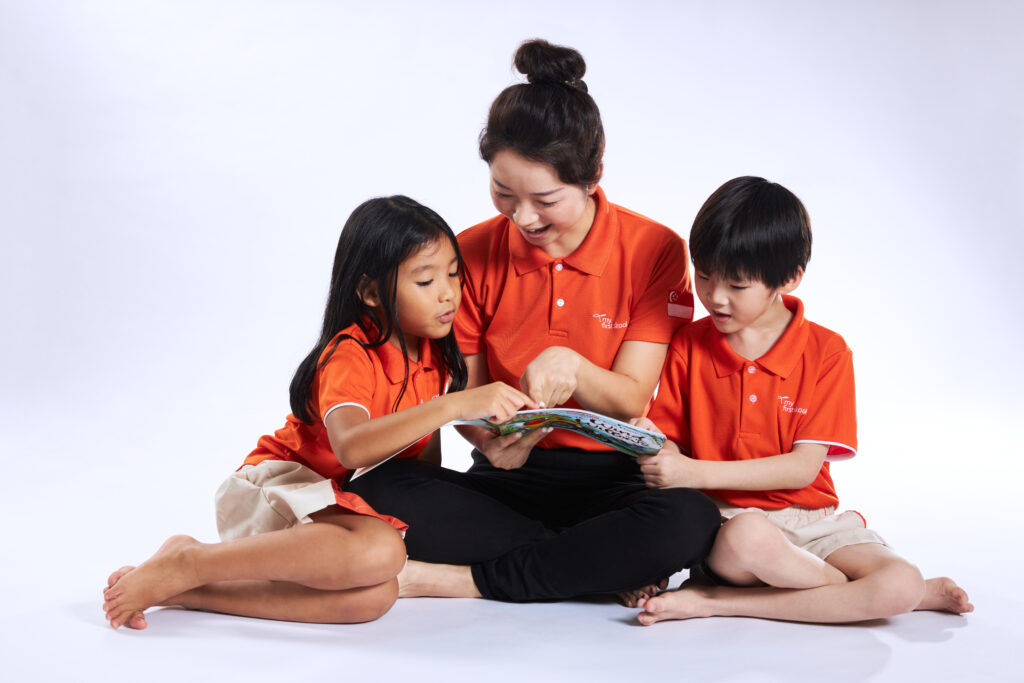
Every year, over 26,000 families all across Singapore see their children benefit from our relationship-based curriculum – one that emphasises forging strong bonds between children, teachers and parents.
Find a centre near you or take a virtual tour to explore our learning environments and learn how your child can thrive.
